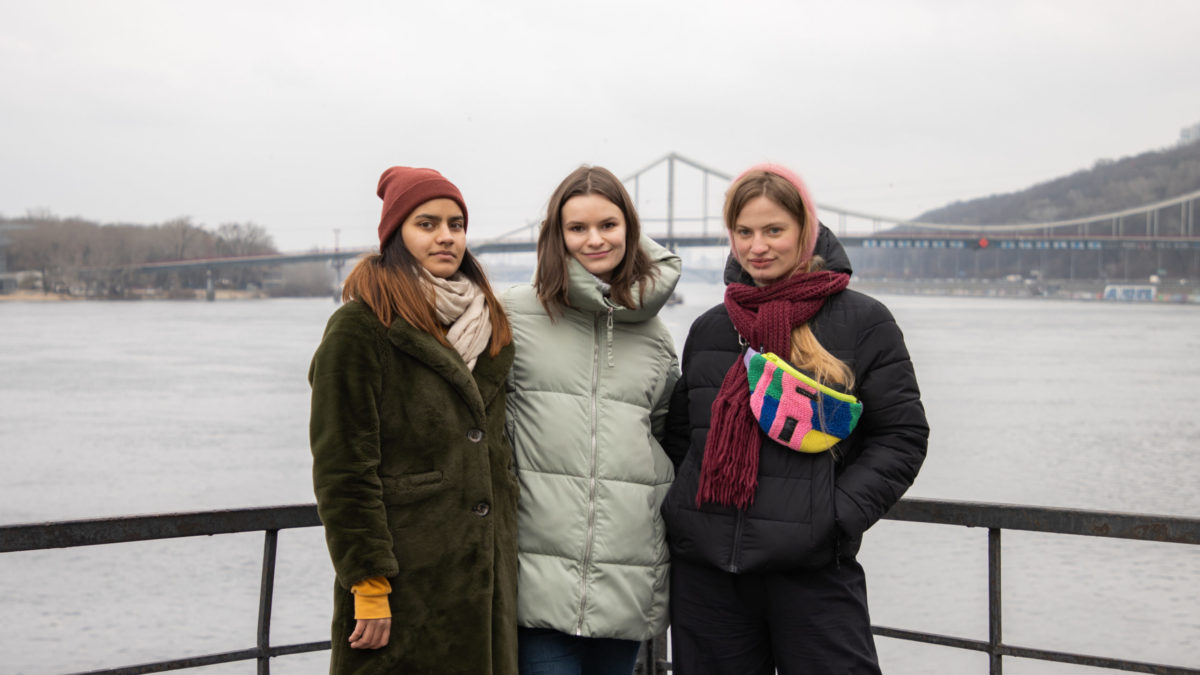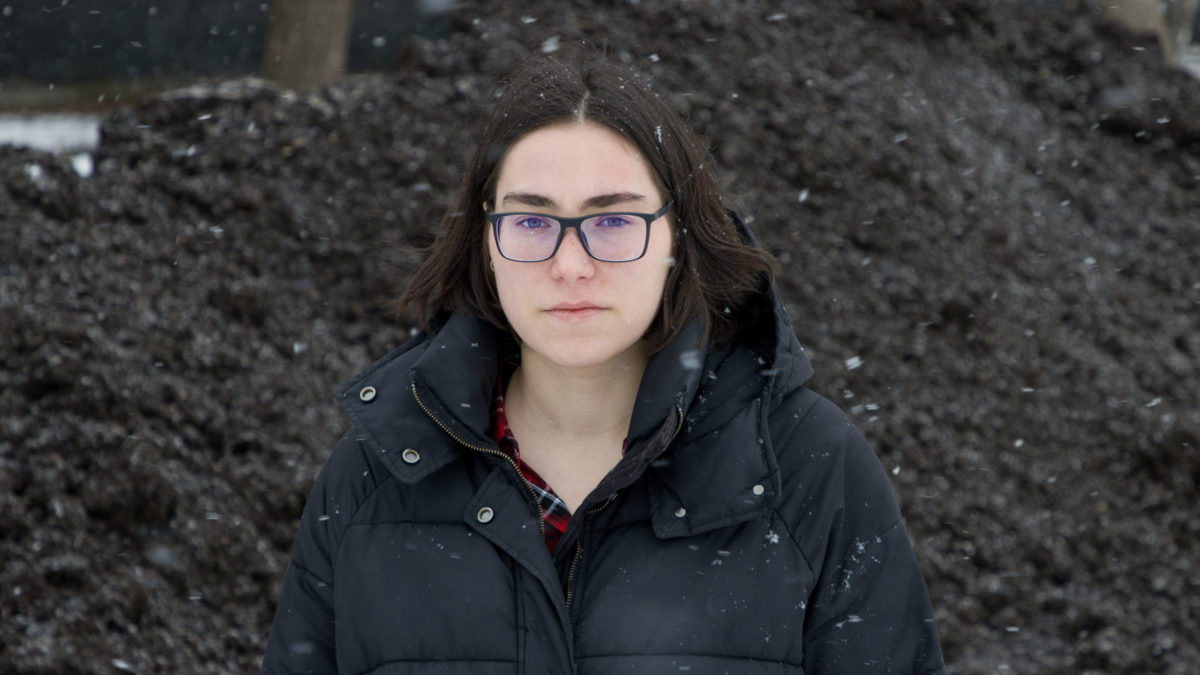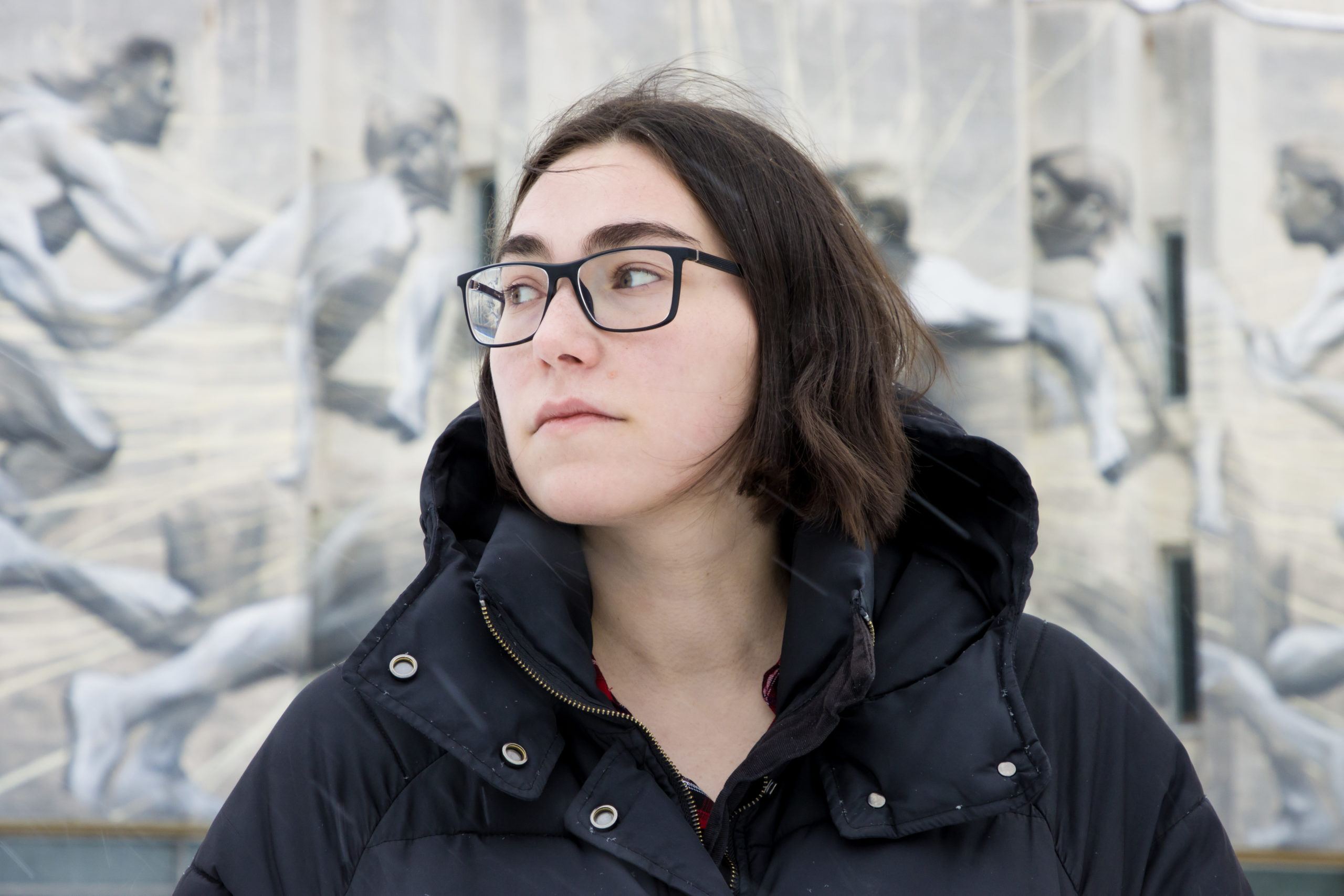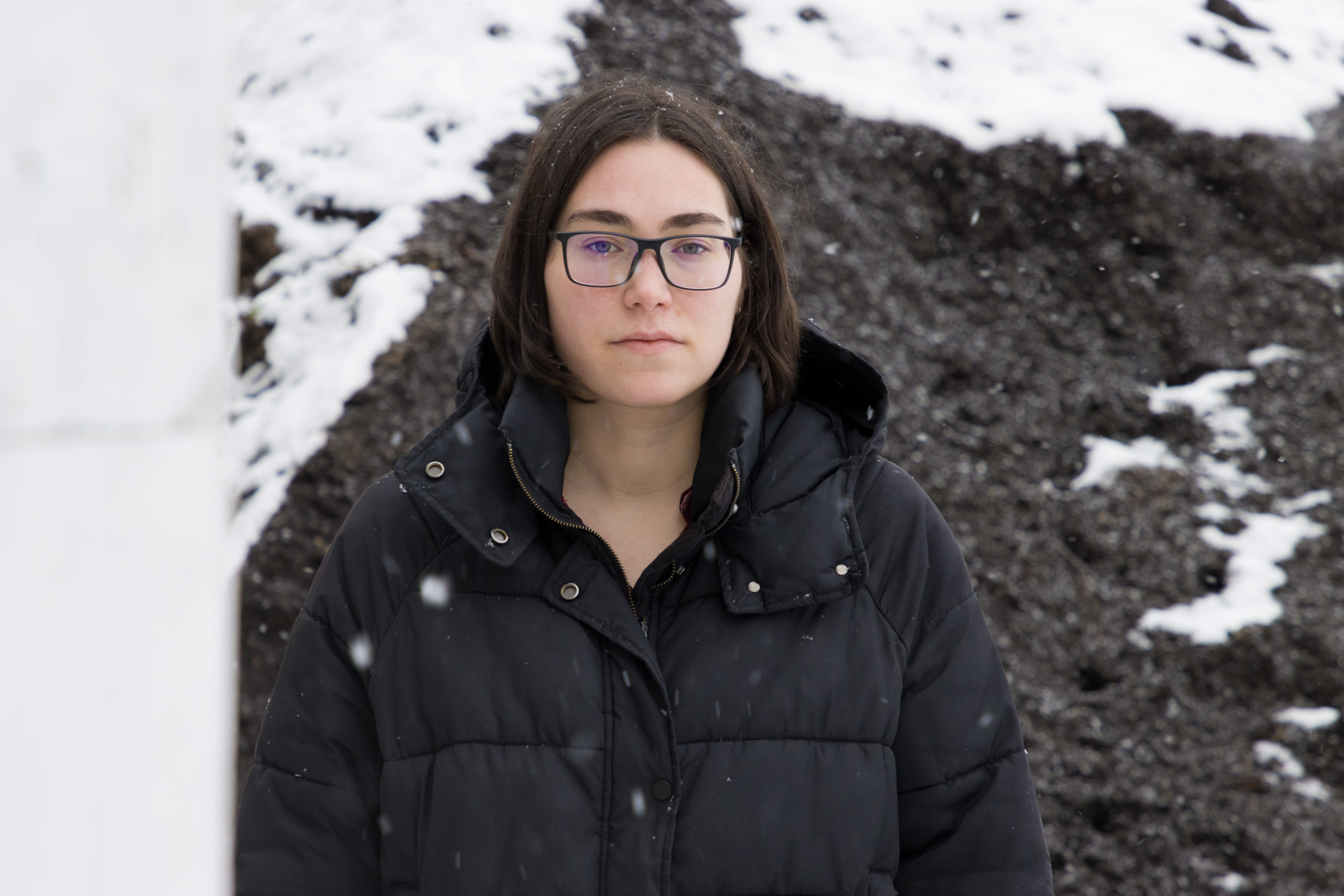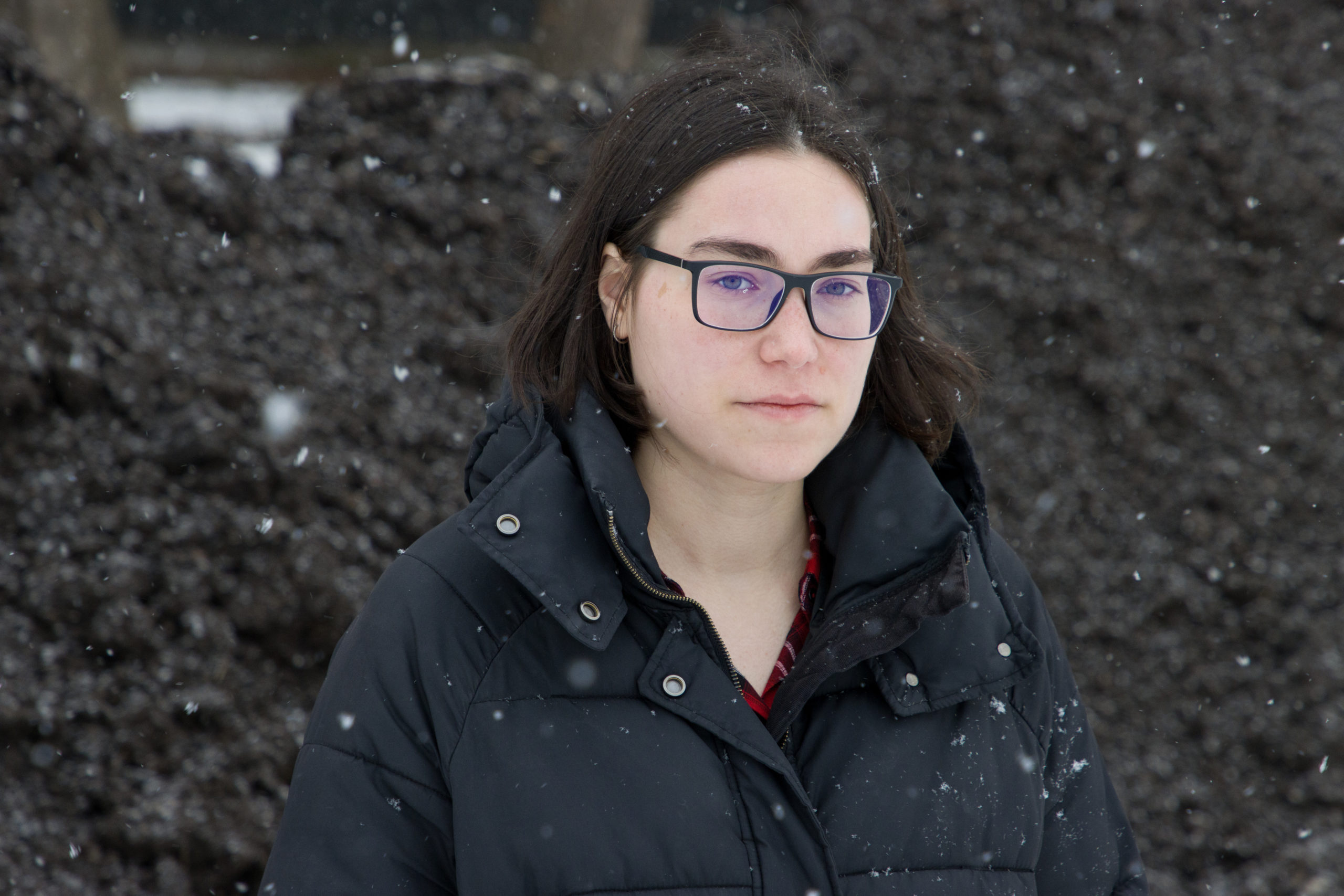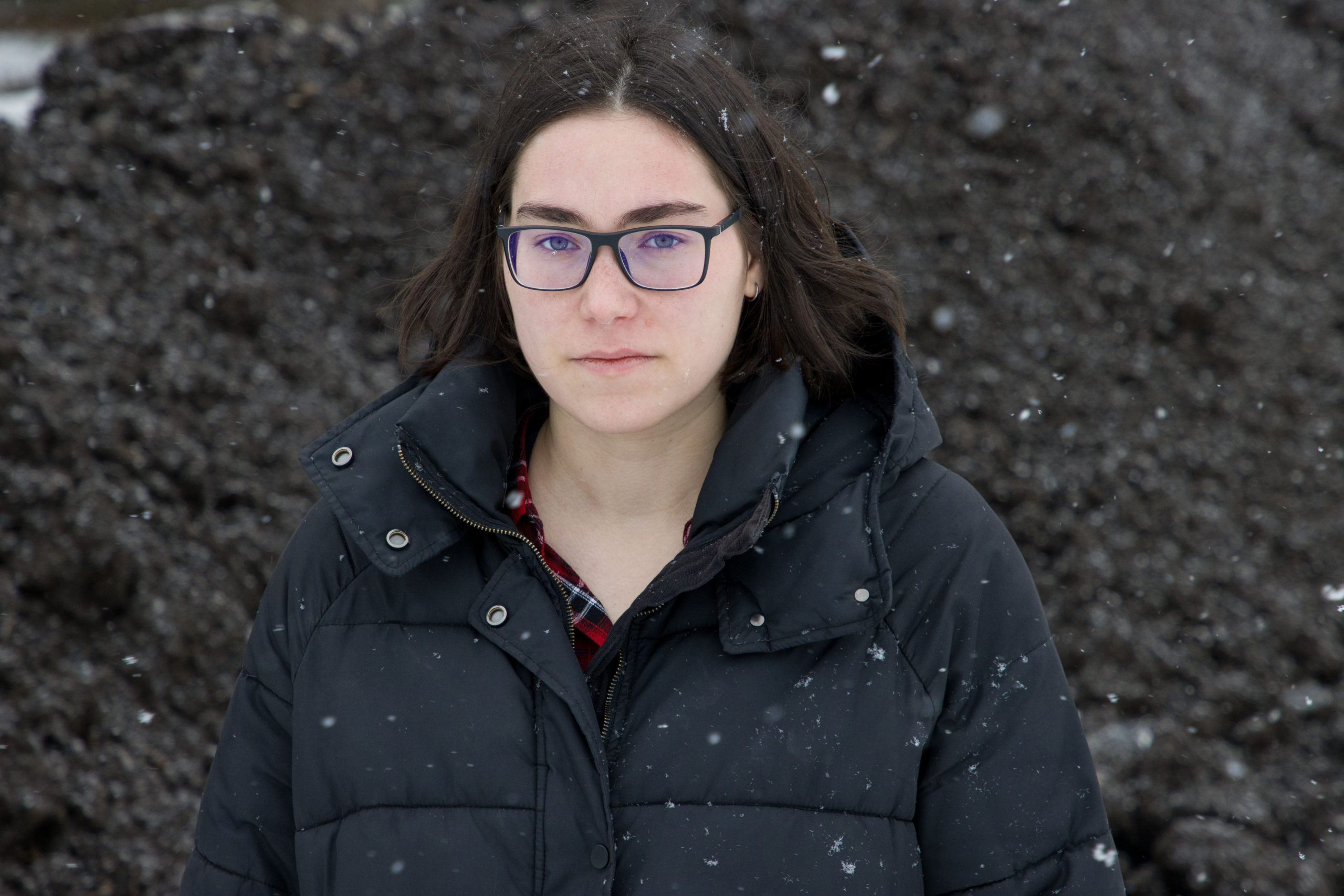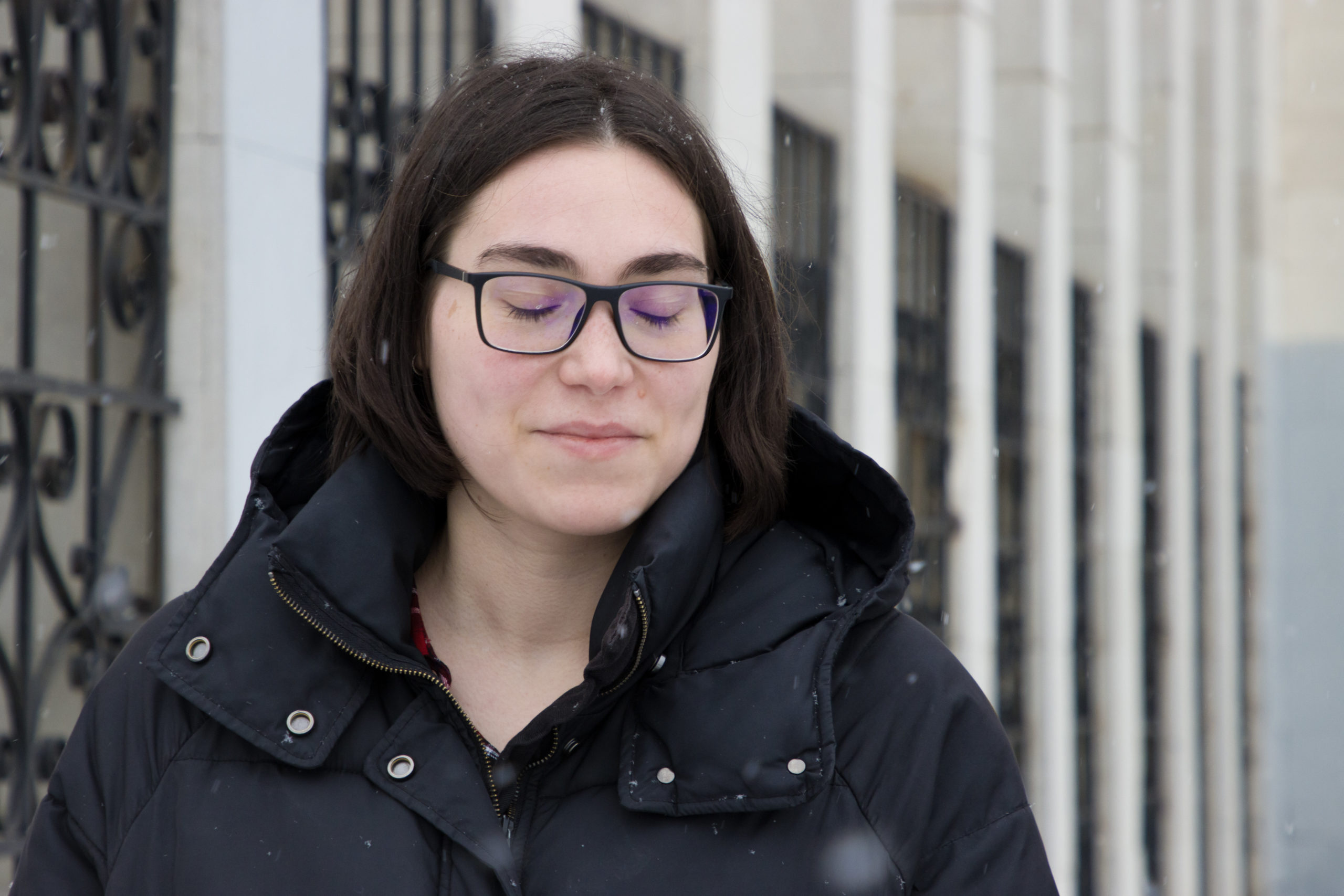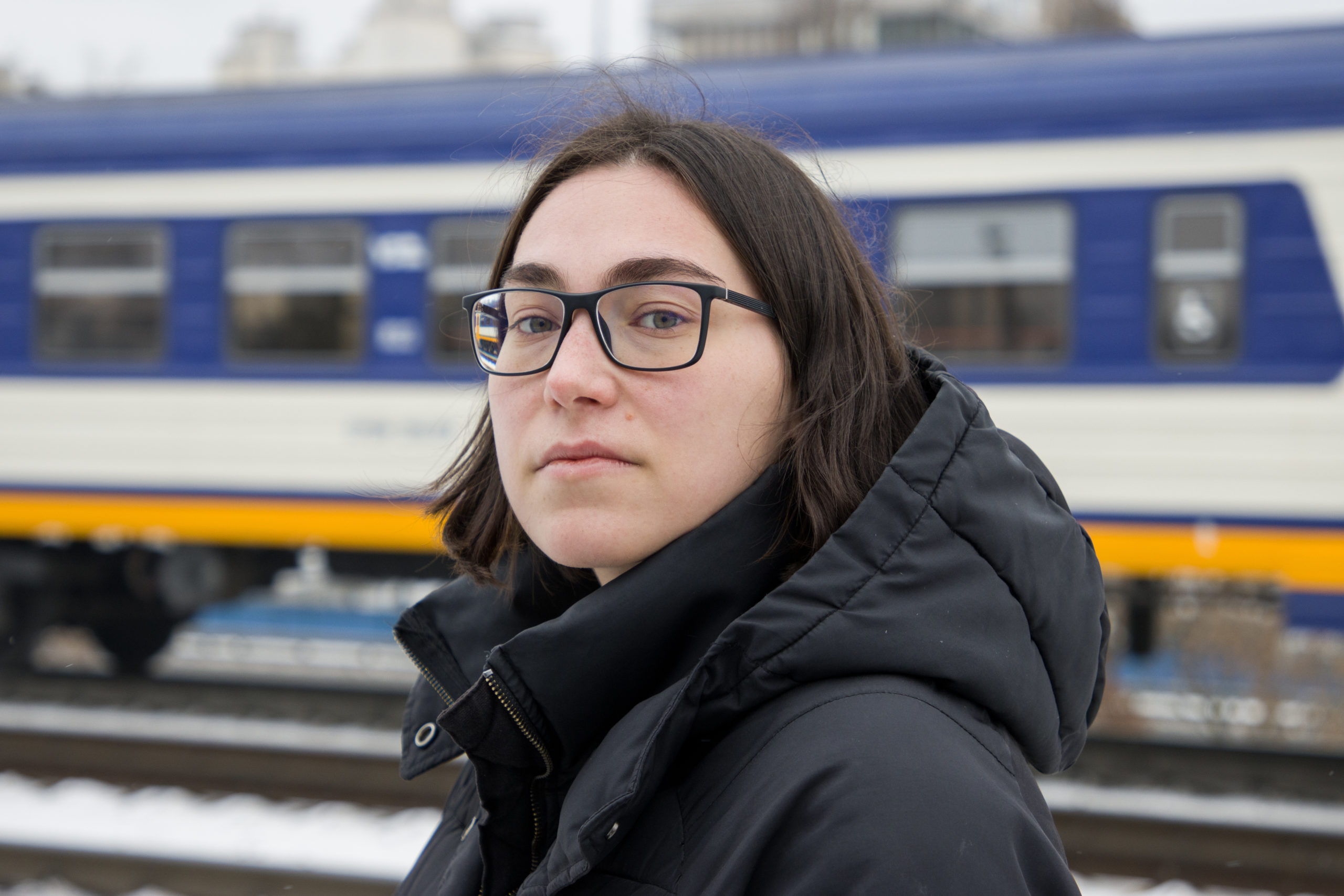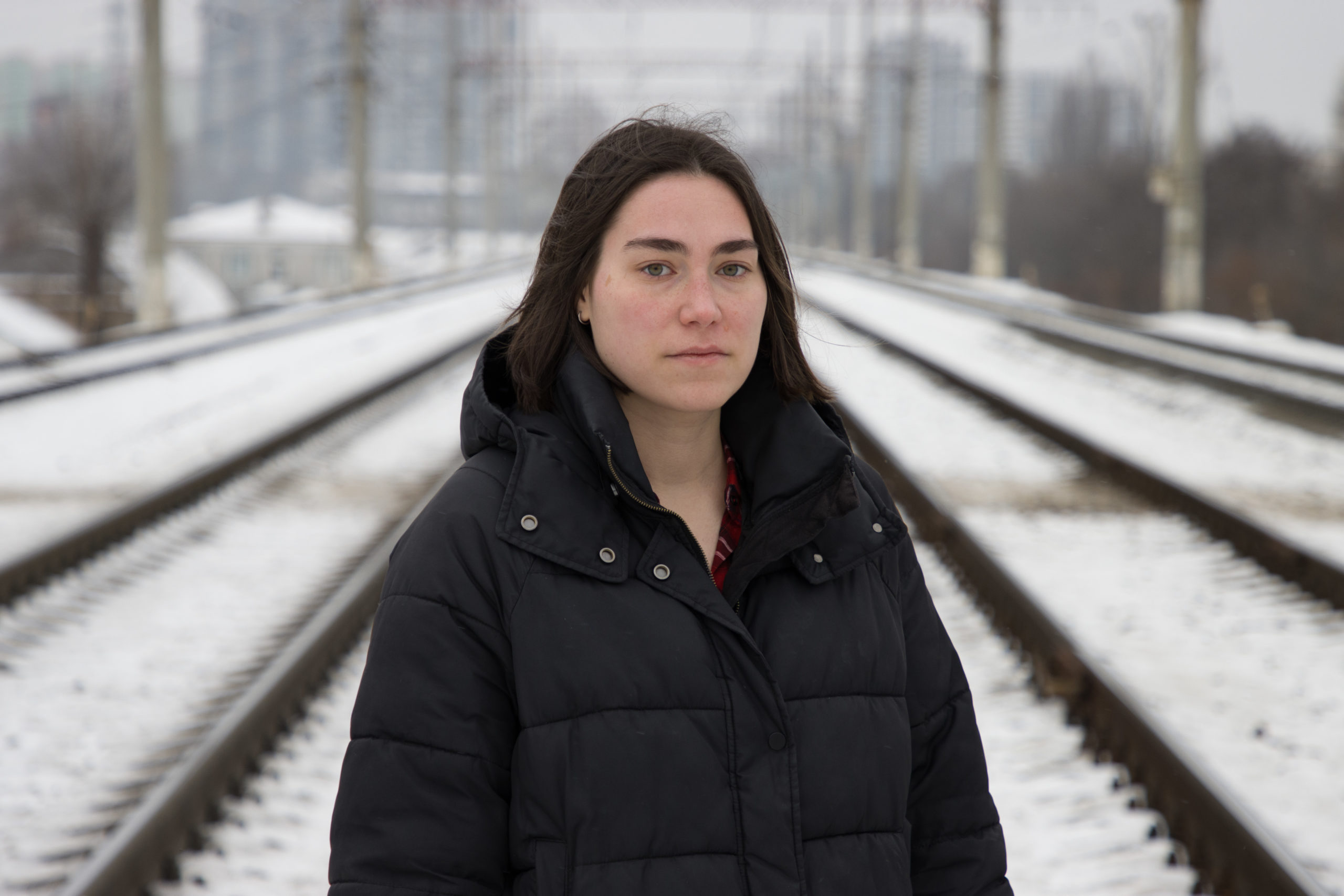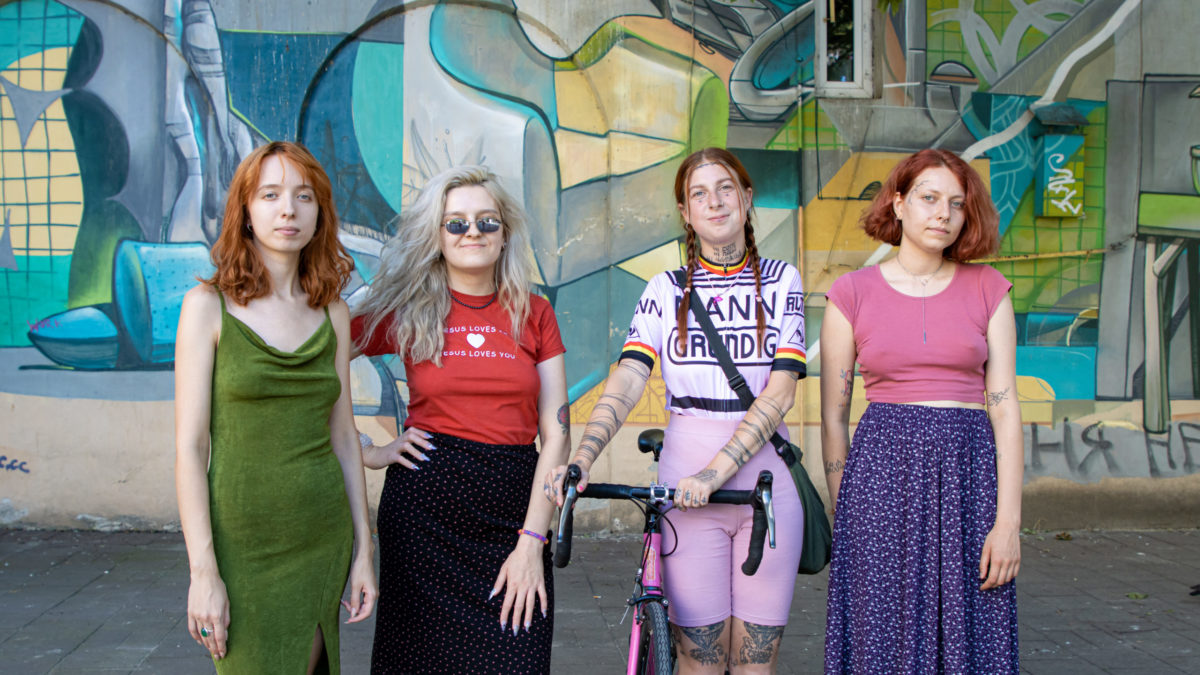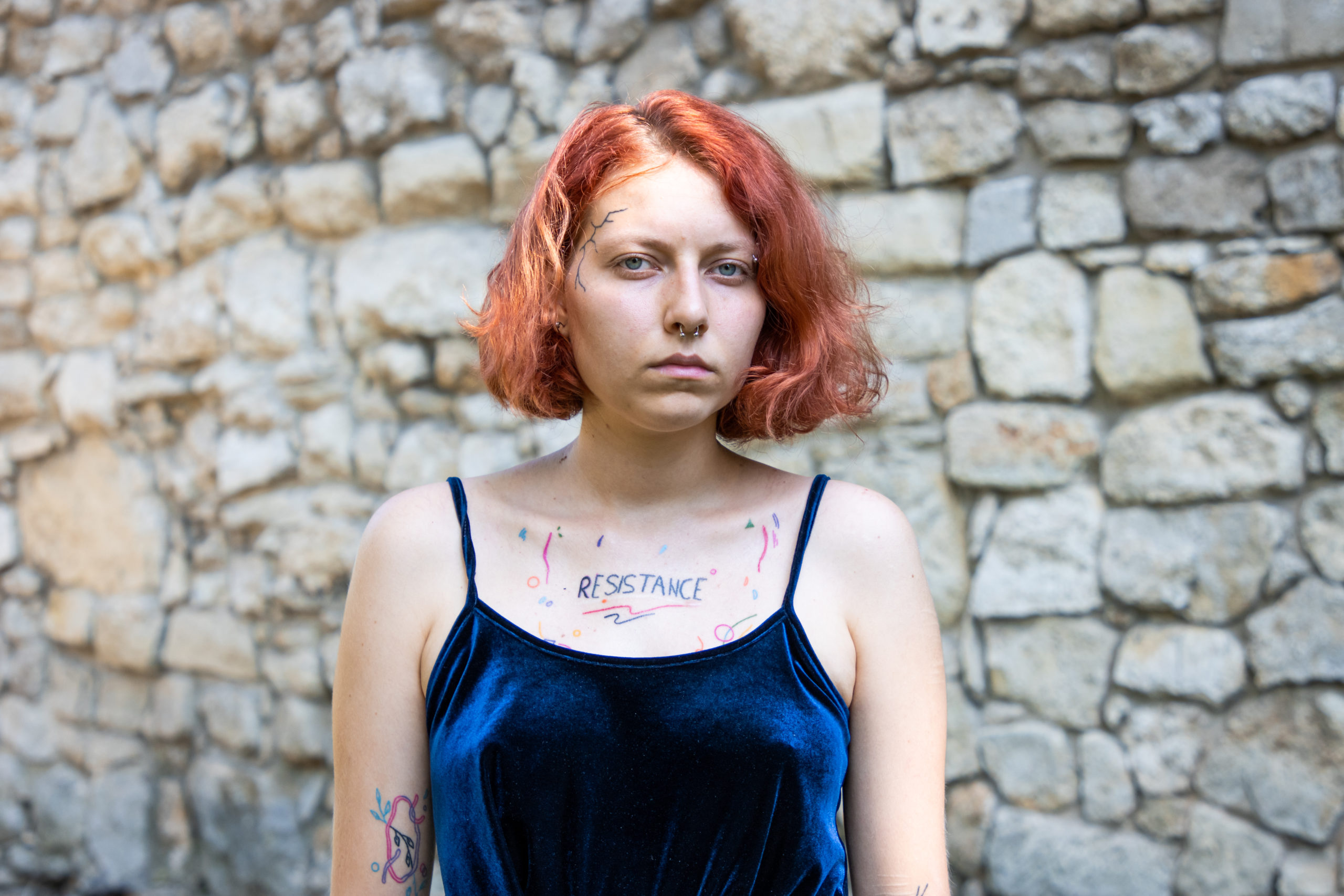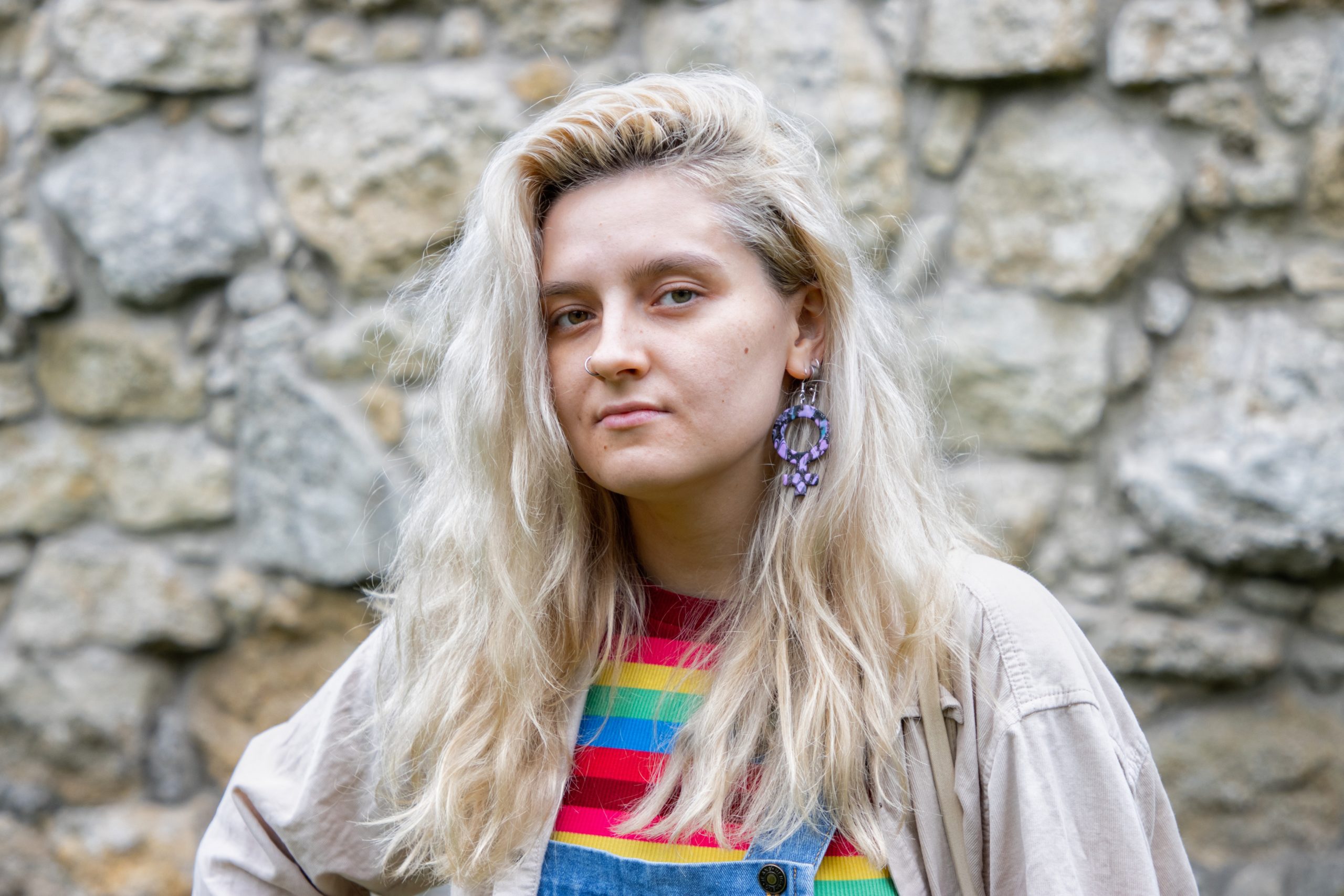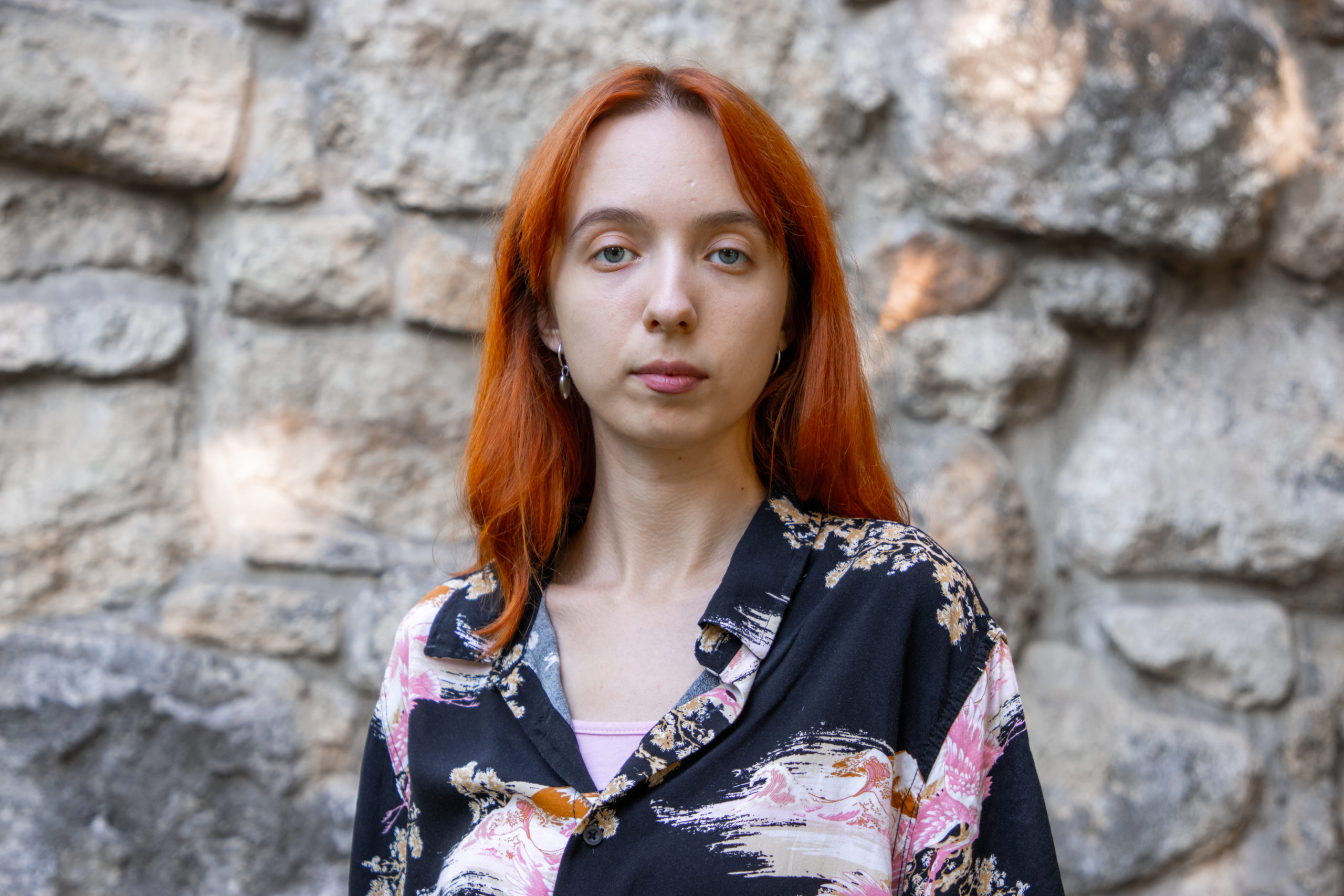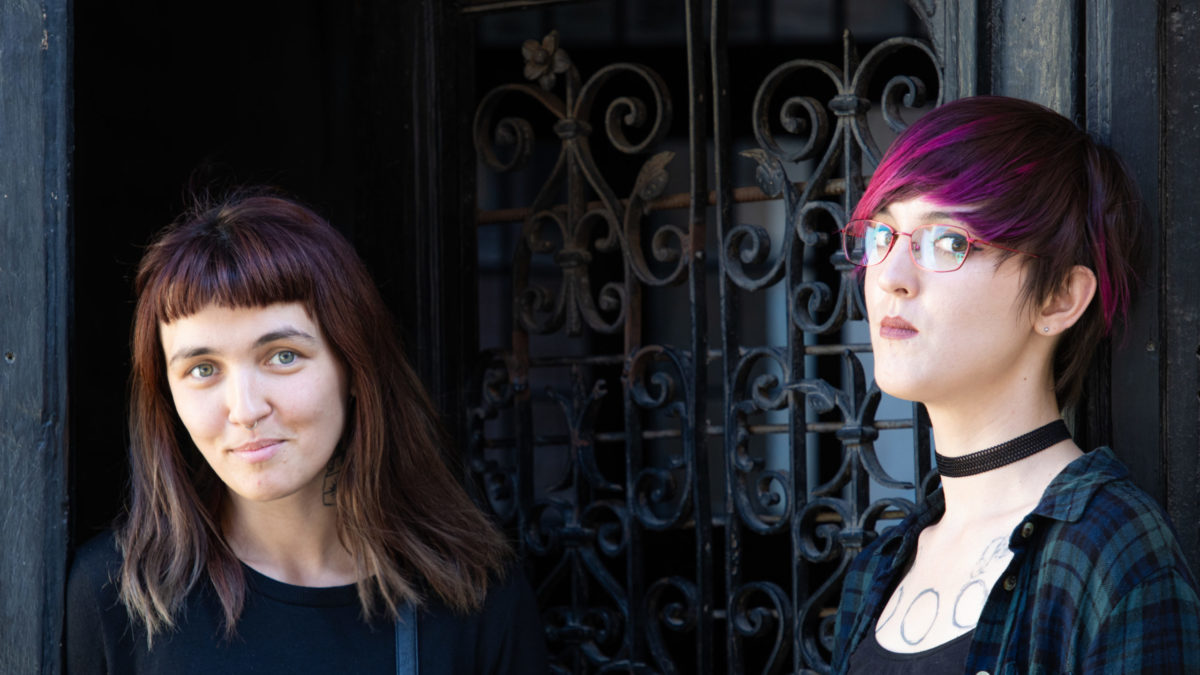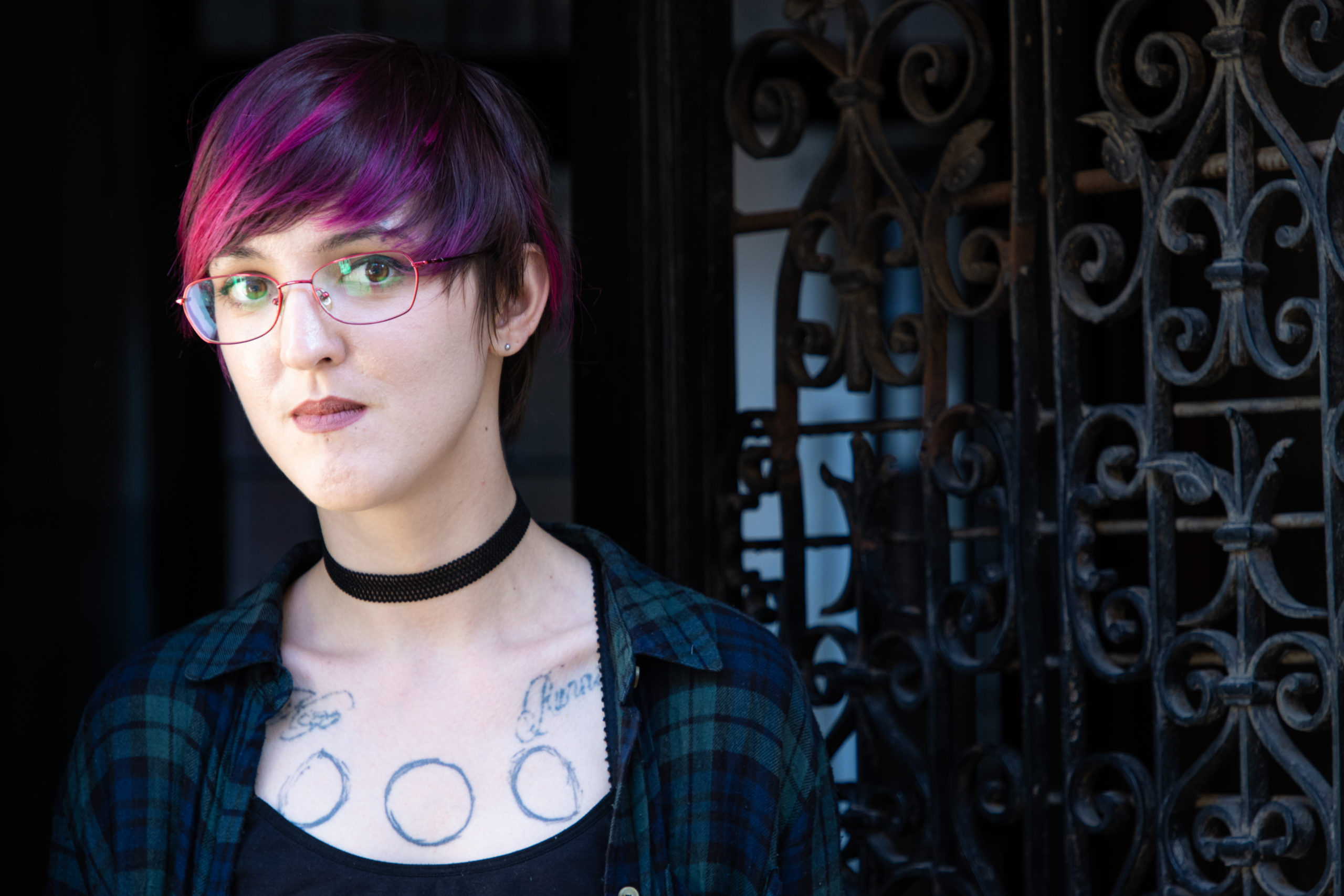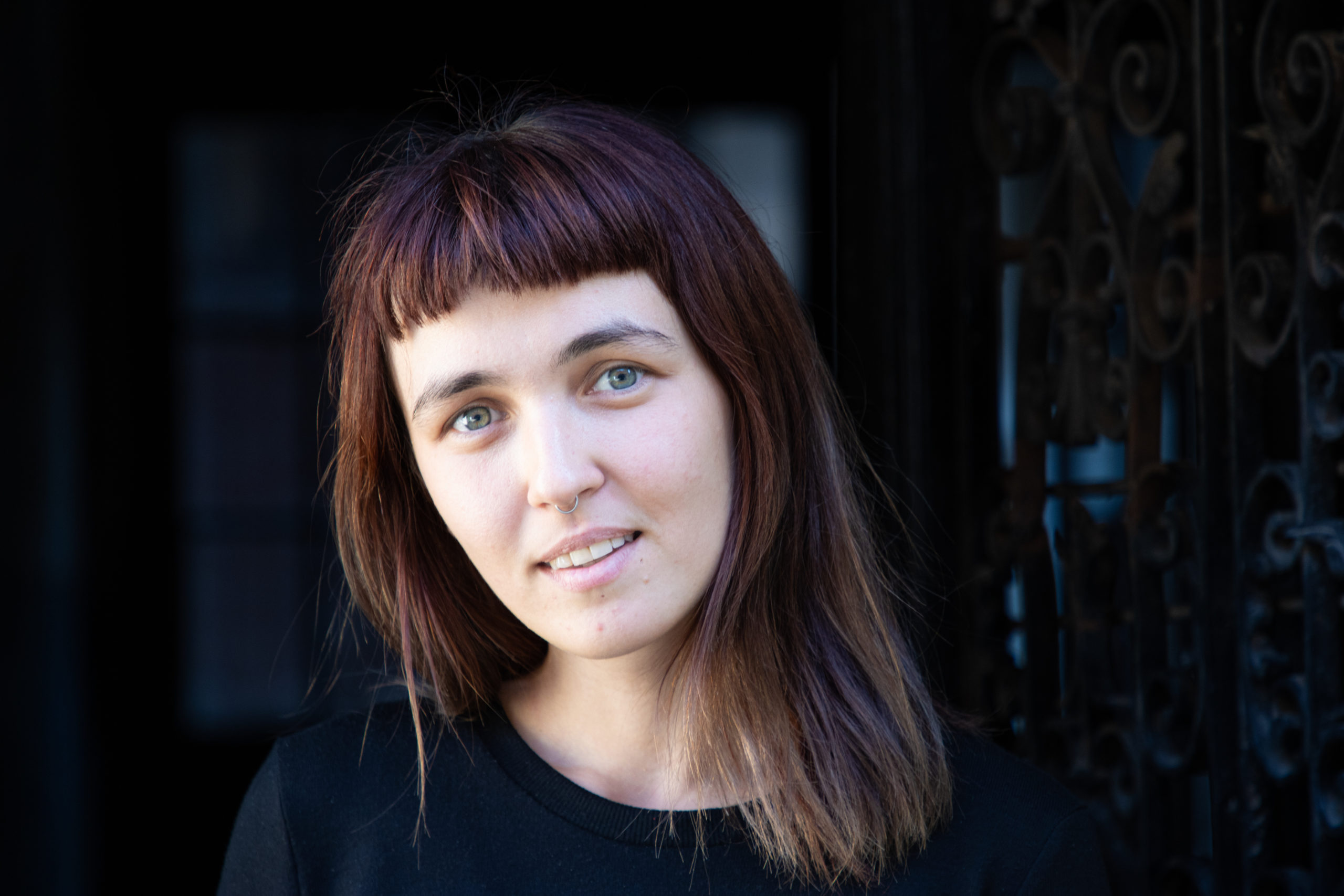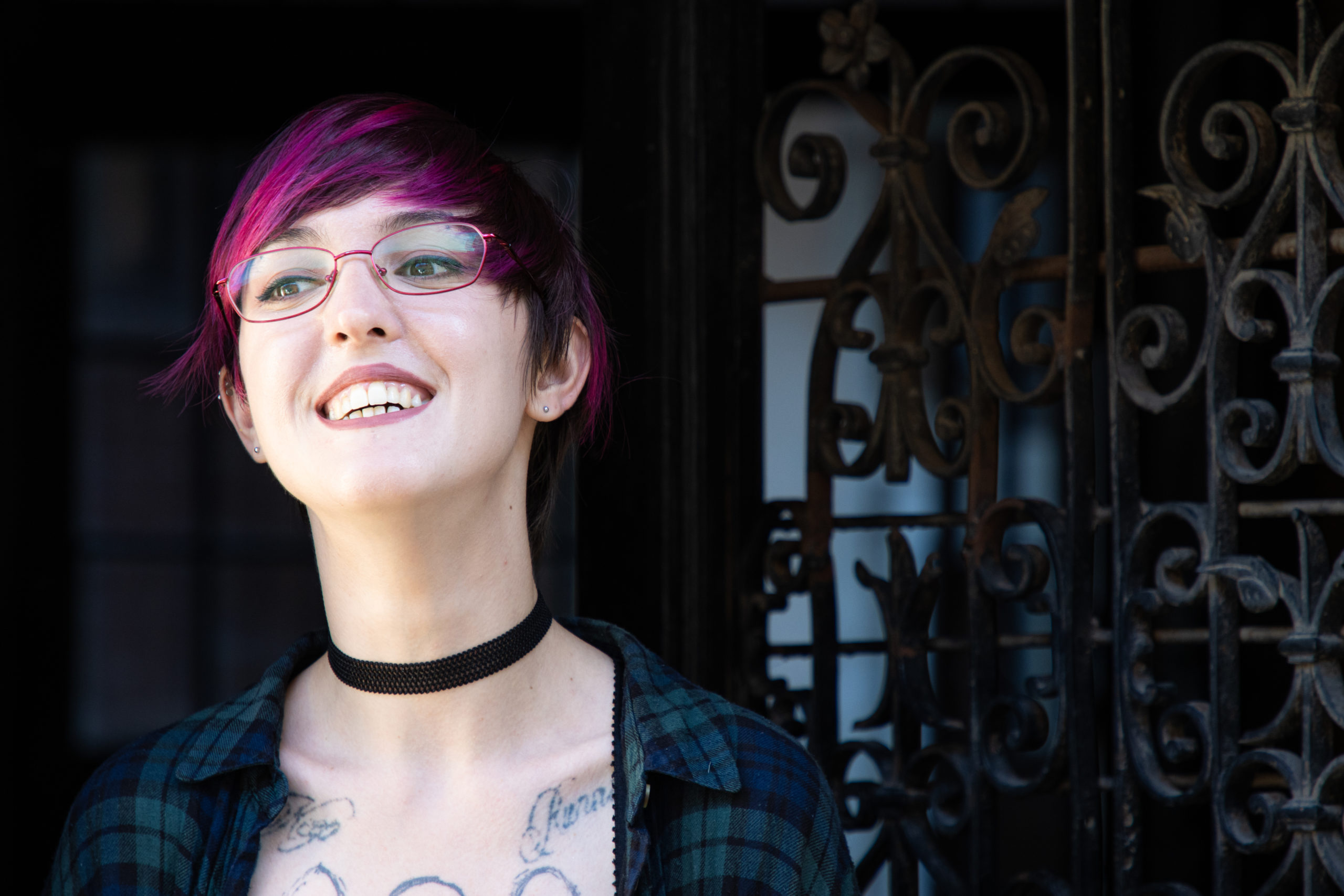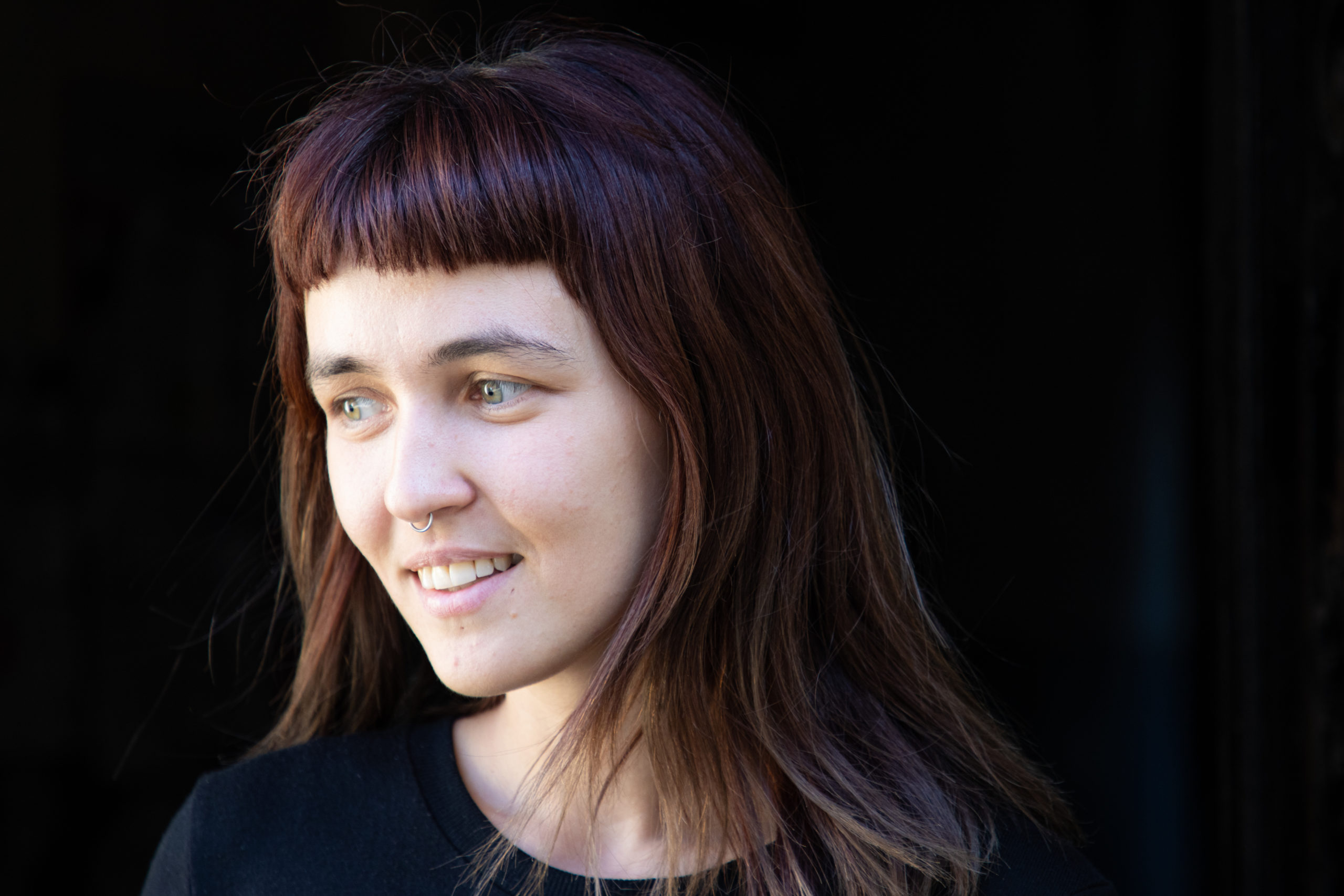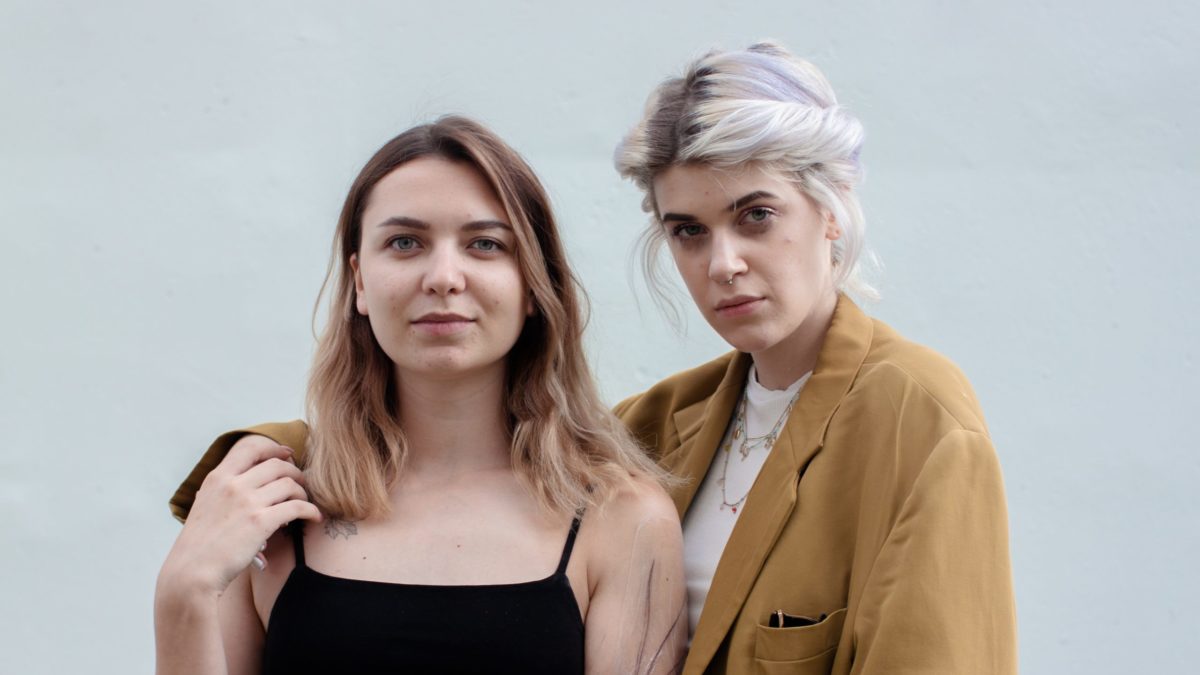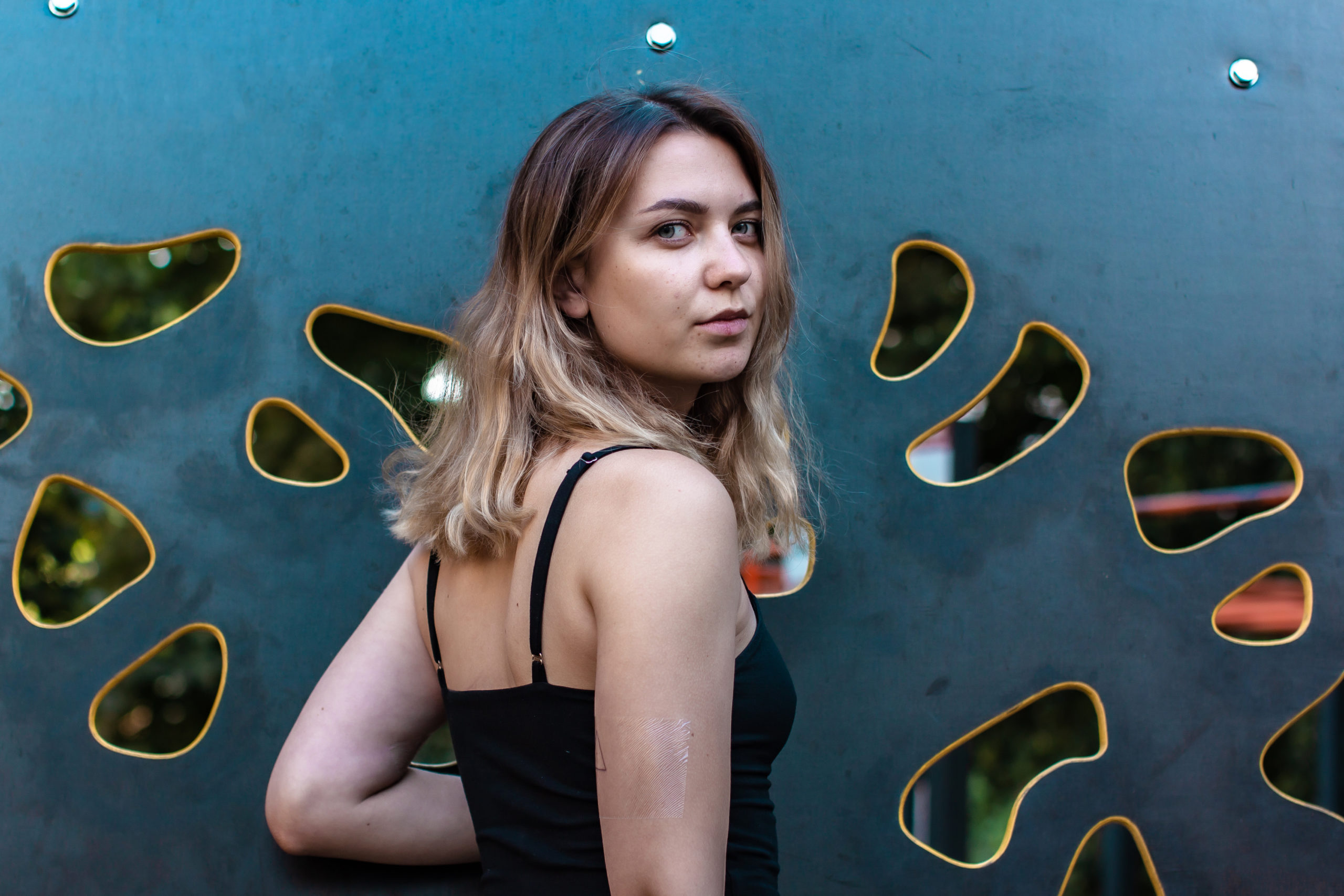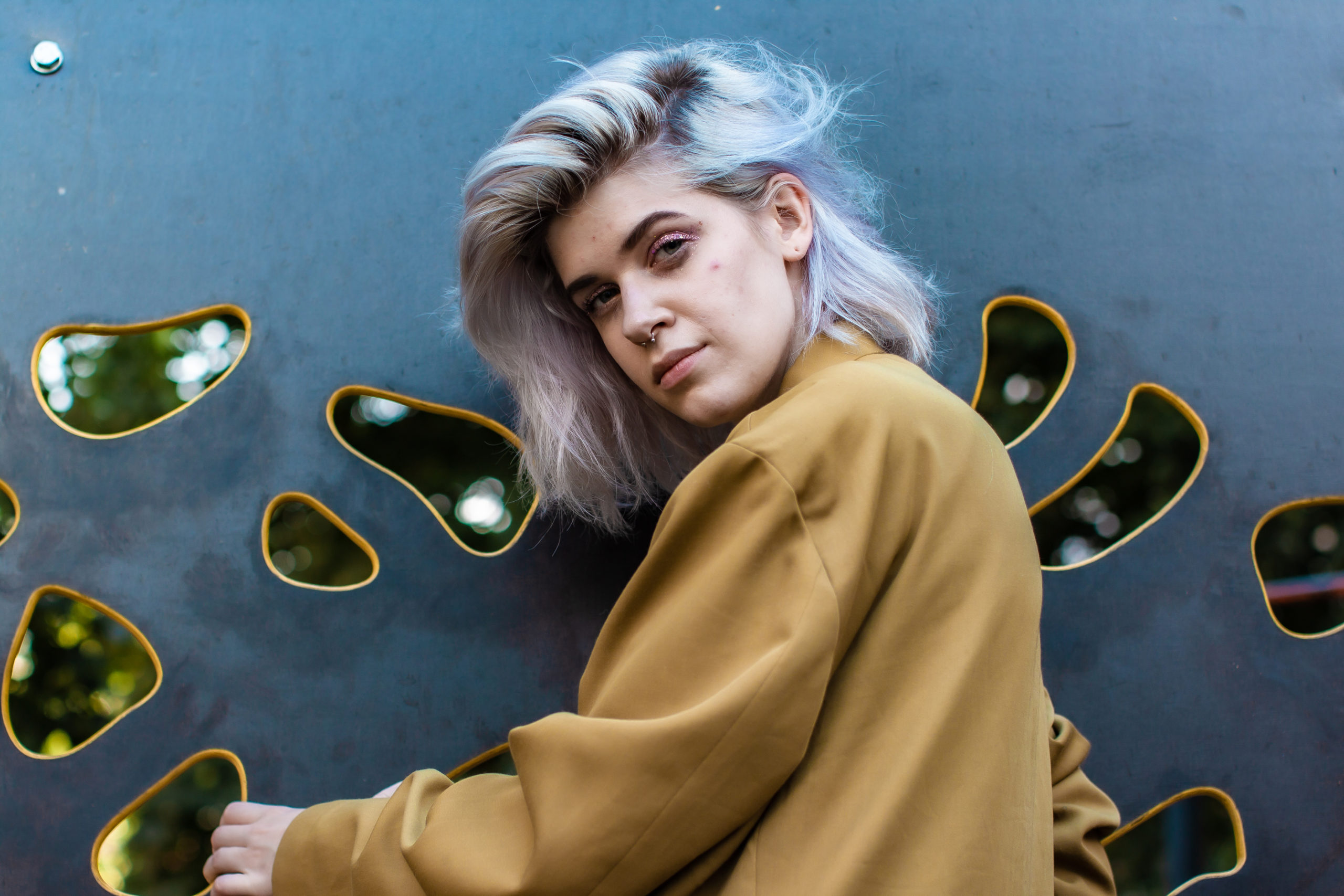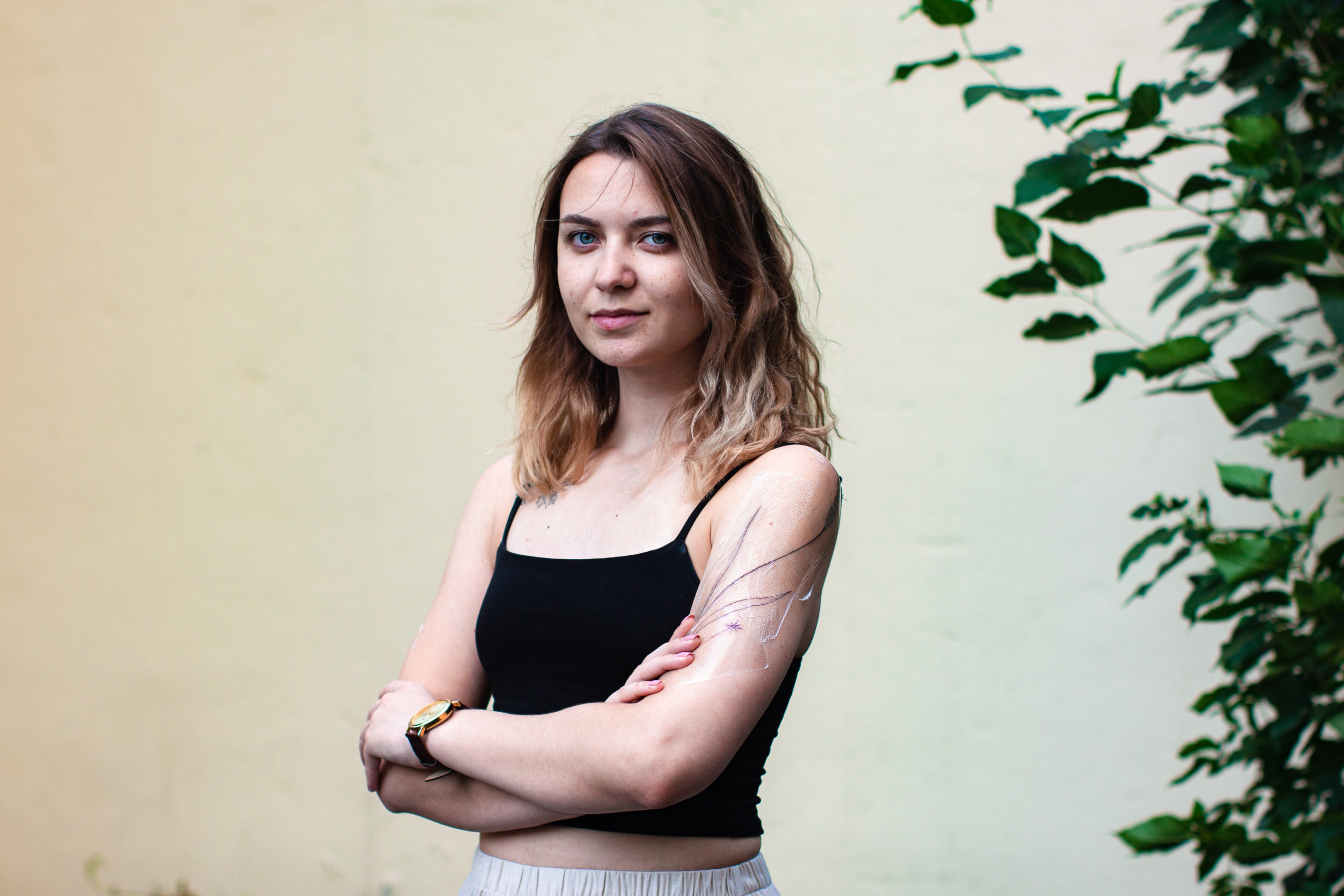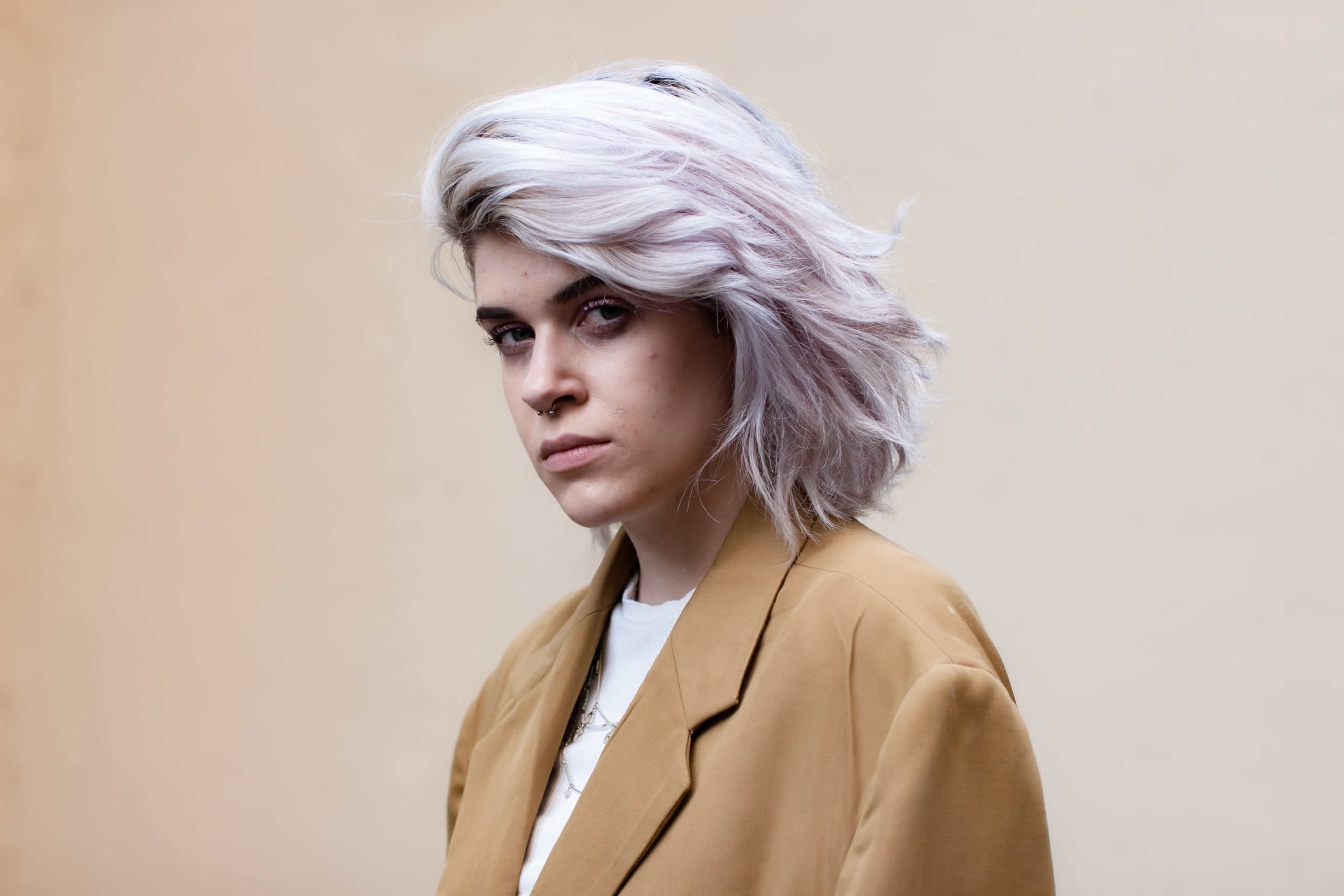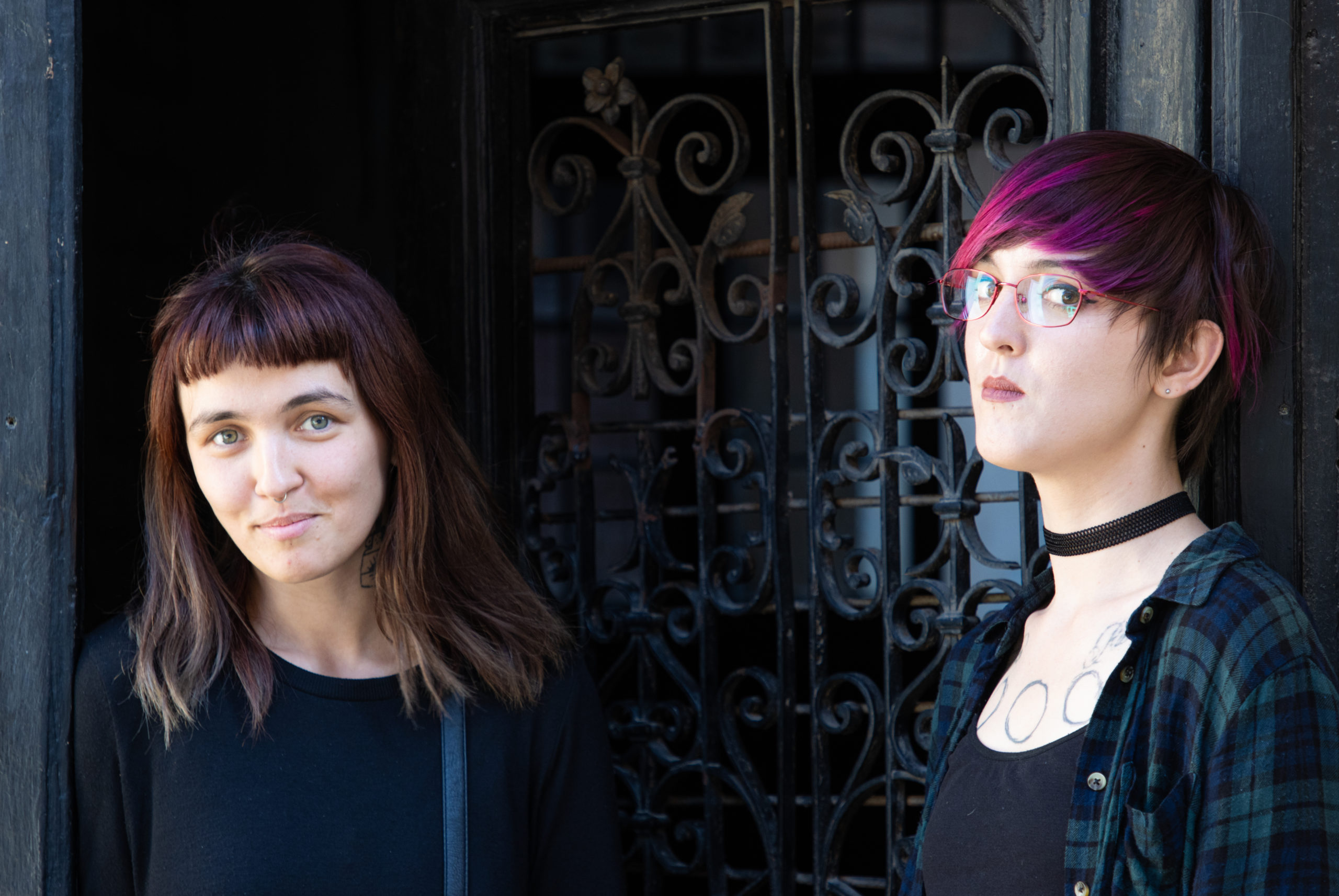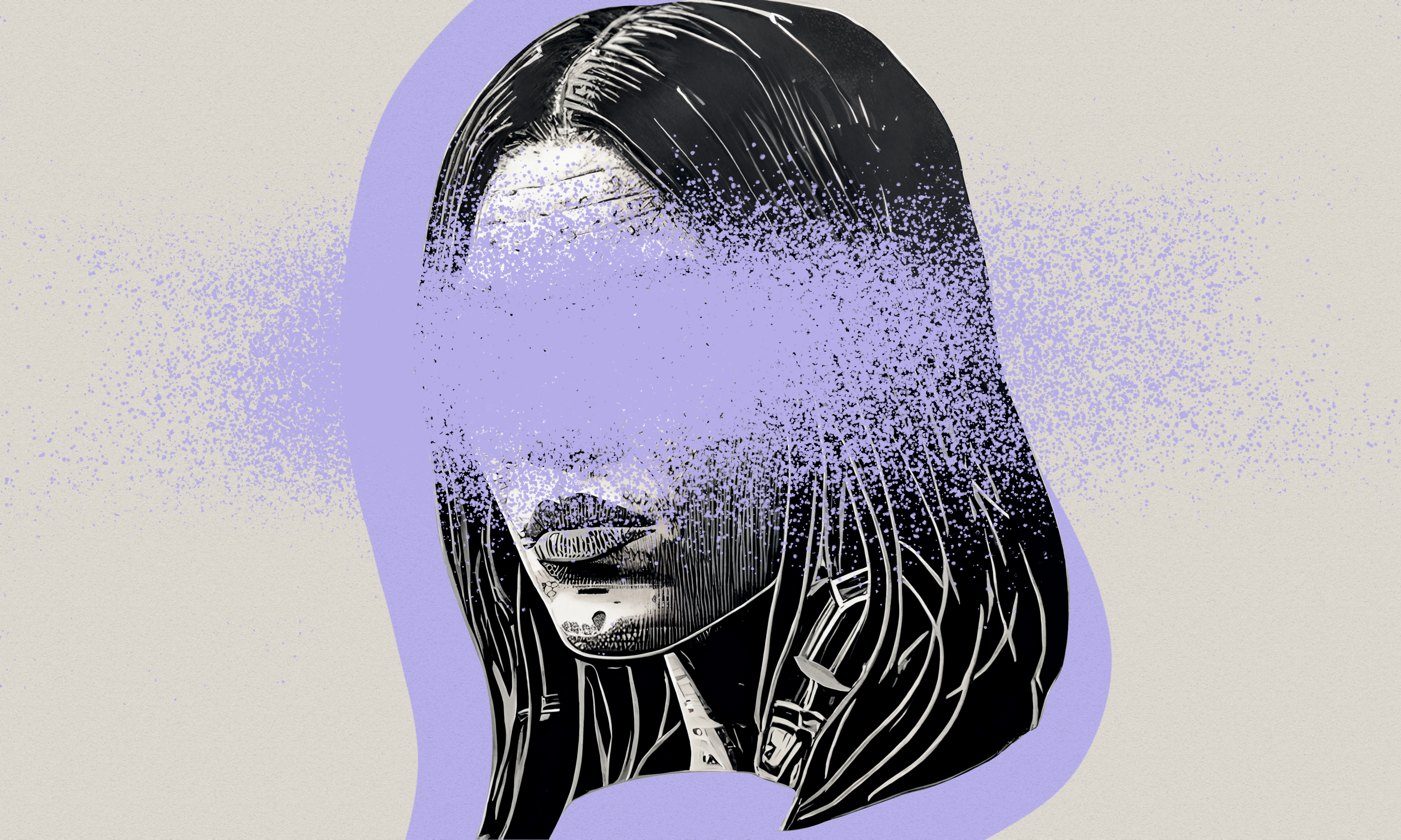26 January 2023
Editor: Bozhena Makovska
Translators: Bozhena Makovska, Maryna Isaieva
Photographer: Michael Tulsky
Feminist Lodge was founded in 2017 as a grassroots cultural and educational initiative by feminists, with the aim of supporting young women in a peer-to-peer format.
Nastya: When I was in 10th or 11th grade, I discovered feminism and it became my optics in life. At that time, “feminist” was an insulting word. I wanted to have some kind of supportive environment so that we could get together and do something cool. That’s how the Feminist Lodge was born. My friends and I came up with the project and the name for it when we wanted to give a lecture on feminism at the university. We felt the need to share what we were interested in.
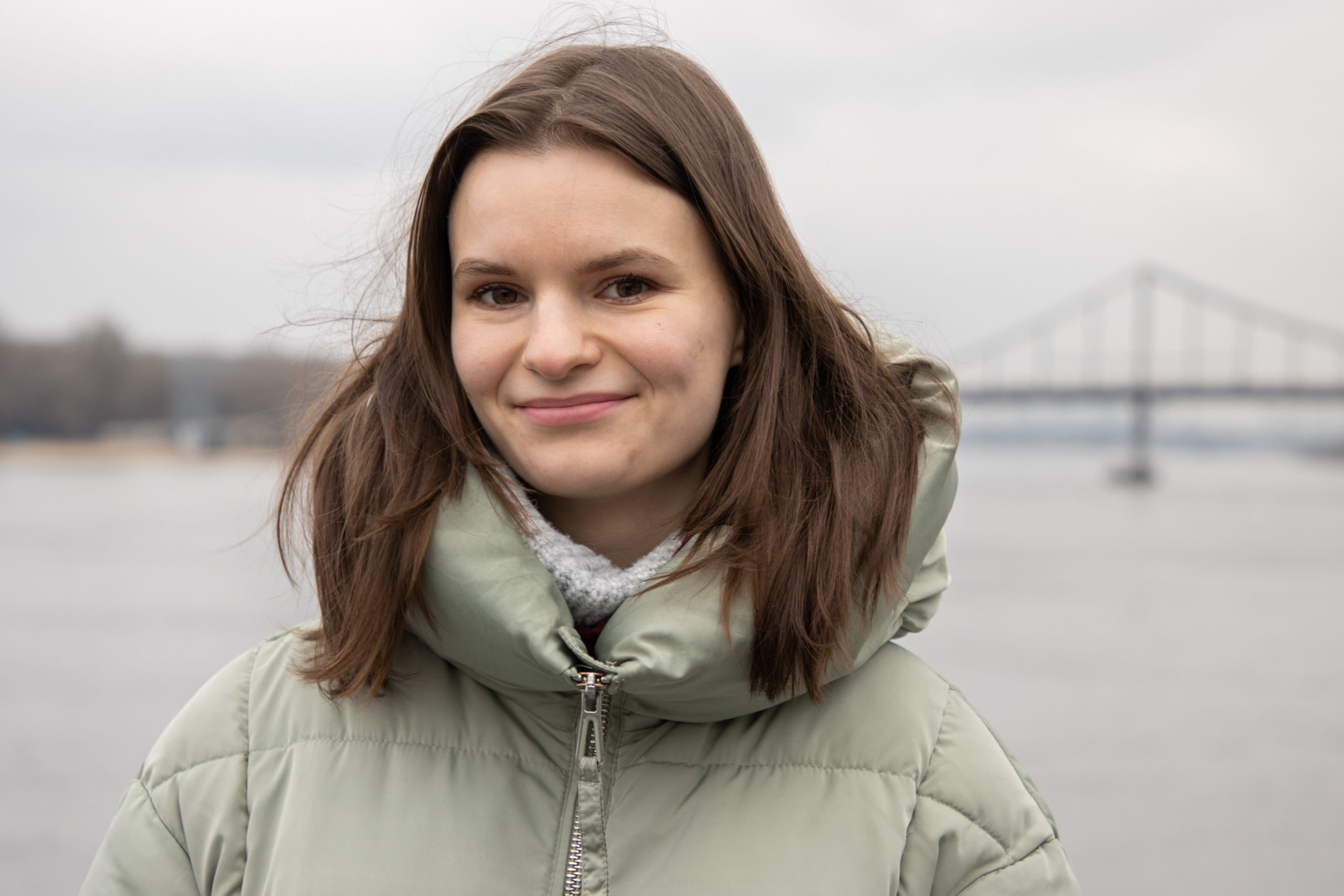
Lesia: I met Nastya at the youth camp for feminists. I remember the motivation I had back then to create a grassroots initiative. Most of the events in Ukraine that claimed to be feminist – whether cultural, educational or any other kind – were disrupted by groups of right-wing radicals. I wanted to resist this, to fight back, to show that it won’t stop such events from happening, and in fact, there will be more of them. I wanted to engage in activism, and an opportunity presented itself when I found a circle of like-minded people.
Nastya: In 2018-2019, we travelled all over Ukraine, organising a series of screenings featuring feminist short films. It’s a great way to introduce people to feminism because, in just an hour and a half, you can showcase numerous different experiences and discuss them. We visited Kharkiv, Zhytomyr, Kremenchuk, Zaporizhzhia, and held screenings in Kyiv three times. It was an extremely exhausting project. That’s when we realised that we didn’t want to burn out. Currently, we’re considering registering an organisation to simplify our communication with donors, but we don’t want to turn our activism into a job.
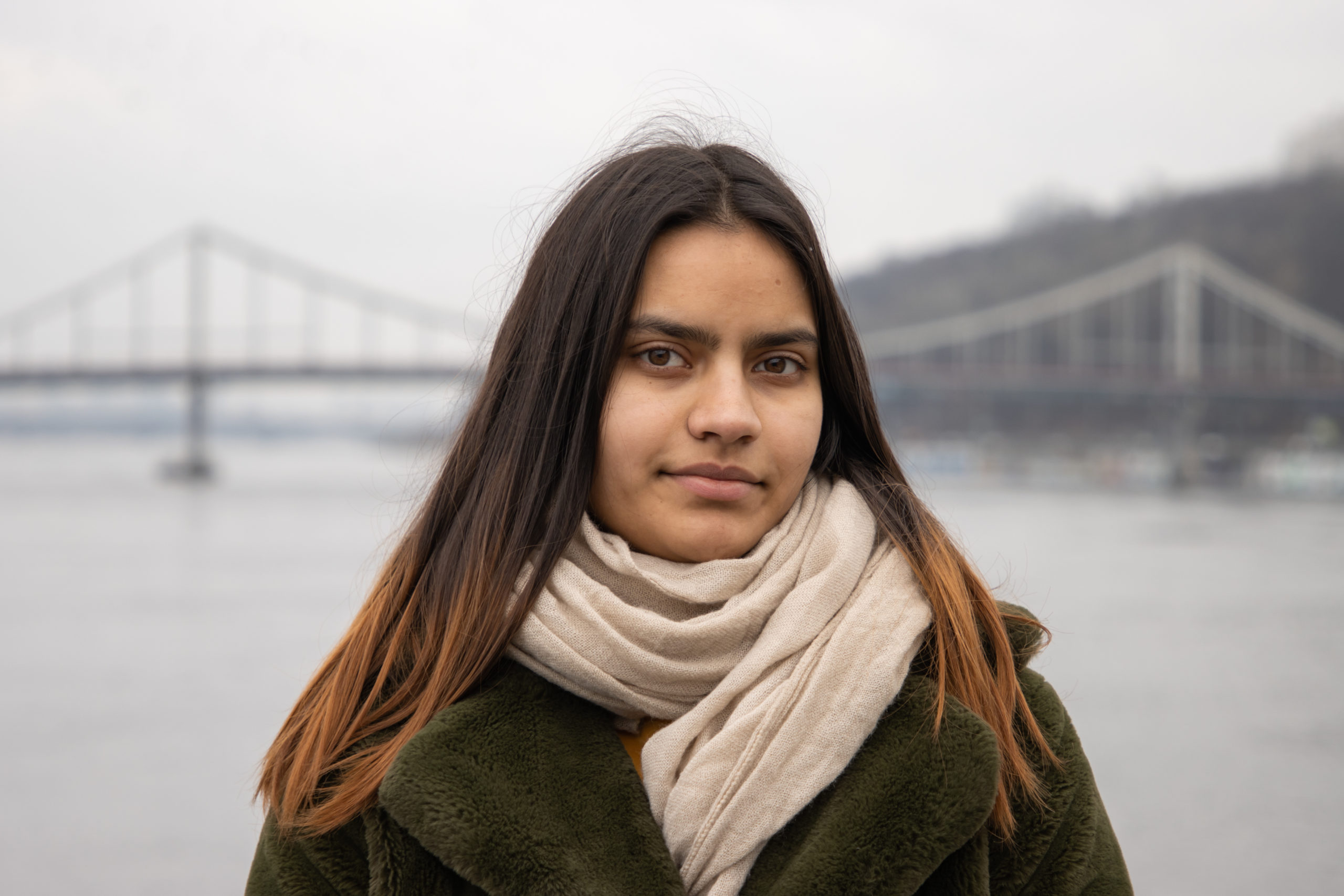
Nastya: We take extra care to ensure the safety of everyone attending our events. We have a protocol in place where we work closely with the police. While it may not align with our ideological beliefs, the safety of our attendees takes precedence over the desire to stay “true”. This algorithm worked well during the solidarity rally with Polish women, where we were able to avoid clashes with opponents who supported the ban on abortions in Poland. This is also a matter of education; those guys would not have been dragged there to “beat feminists” if they had a basic understanding of what abortion is. That’s why it’s important for us to promote feminism and discuss our activities, even now, when humanitarian work has become such a significant part of our lives.
The war has changed our focus to the basic needs of women and girls, who are the most vulnerable in a humanitarian crisis. Survival becomes a priority when basic needs are not met.
Zhenia: I joined the initiative during the full-scale war. It was the war that motivated me to take action and help people. That was such an eye-opening experience for me. You may know that the world is malfunctioning and that the system is not working properly. But when you experience war personally, you realise that the system is not just dysfunctional. It is actually designed to work this way. Wars are not some extraordinary situations; there are many injustices and oppressions in life in general. It was painful for me to come to this realisation.
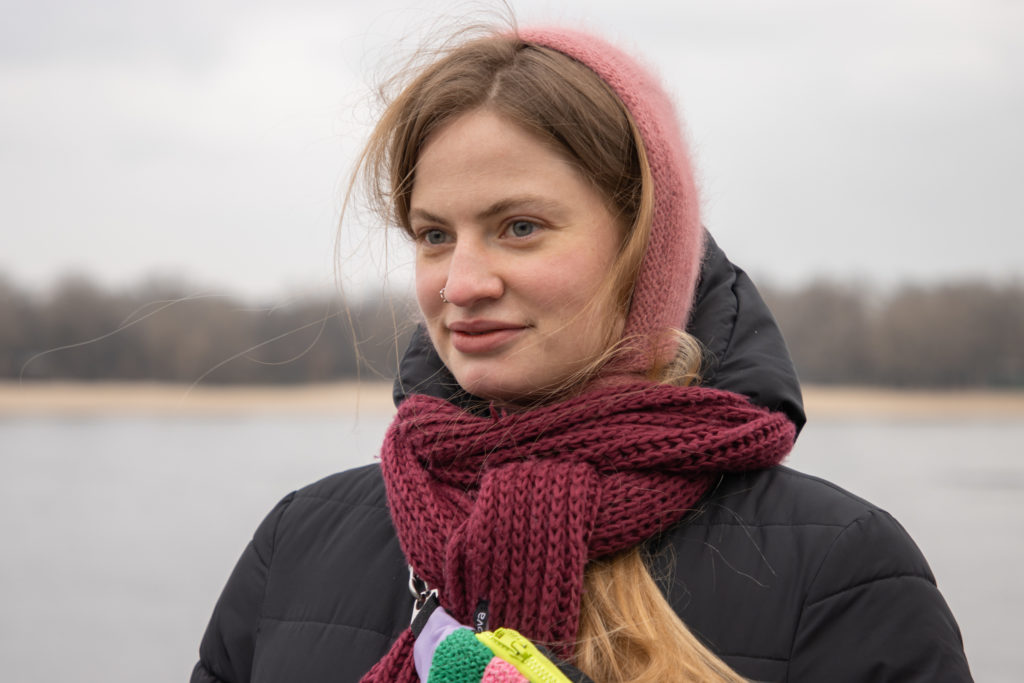
Lesia: When the full-scale invasion began, we were shocked for the first few weeks. But then we realised that we had certain opportunities and contacts within the feminist community and that we could apply for grants and help people. Initially, we planned to collect general supplies such as medicine and hygiene products for women. We sent parcels to Kherson, Kramatorsk, and other cities. And then a post about us was published in a group, and we started receiving numerous individual requests. We decided to try and fulfil them, so we asked volunteers for help.
Zhenia: These parcels often end up in rural areas where IDPs or simply women who have been struggling to make ends meet live. Humanitarian aid typically doesn’t reach such places, so I think it’s really great that we’re able to reach out to those people.
Nastya: Big foundations like UNICEF are helpful, but only in big cities. They would never send aid to the occupied territories. Through our connections, we’ve found individuals who drive there themselves and wait in lines at russian checkpoints. The grants we received were flexible, thus we took a chance and sent some expensive medication, hiding it in a box between the pads, hoping that the russians wouldn’t steal it. Unfortunately, there are fewer and fewer funding opportunities like these. While we want to address immediate needs, we also need to consider what will happen when the war ends. It’s time to start thinking strategically about how we can be involved in rebuilding the country. However, the war persists, and the demand for aid is not decreasing.
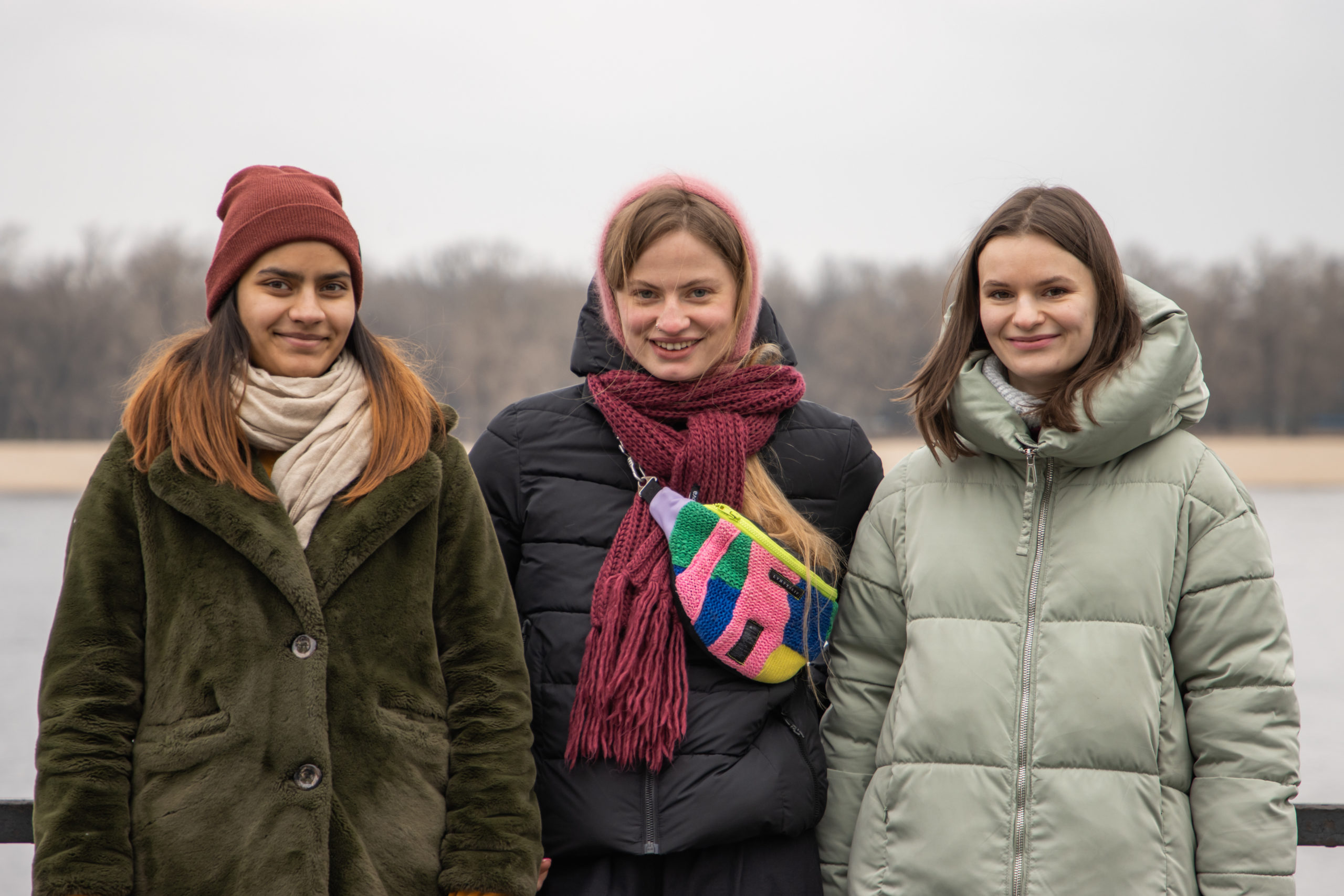
The role of the grassroots volunteer movement in Ukraine is hard to overestimate, in fact, it is the circulatory system of the whole country. We want to add a feminist lens to this movement to meet the needs of women and girls.
Zhenia: Volunteering is how I choose to spend my free time, so I prefer to work with people who share my political views. When the struggle has a broad focus, a lot of messages are lost. What’s important to me is being part of a team that collectively identifies problems and develops strategies to solve them. I have always advocated for non-governmental organisations. I thought that institutions could solve all the problems, but now I see that grassroots activism is much more efficient and effective.
Nastya: We are all intersectional feminists, focusing on diverse experiences and acknowledging their non-monolithic nature. First of all, we try to help those people who are most vulnerable and oppressed. Humanitarian work is an example of how we put our values into practice. In our opinion, sharing, caring and solidarity look like this in the context of war. We have been actively expanding our network. For example, we’re collaborating with FemSolution and Bilkis. We are thinking about how we can move from chaotic assistance to a more structured approach. This is our strategic vision. I think there are even more challenges ahead. We have to survive, and we have more joint actions in mind.
Zhenia: With the beginning of the full-scale war, anti-colonial narratives have definitely become more relevant to us.
Nastya: Even though we were aware of the neo-colonial influence, this topic was not in the first place for us before.
Lesia: We also share the same anti-capitalist views.
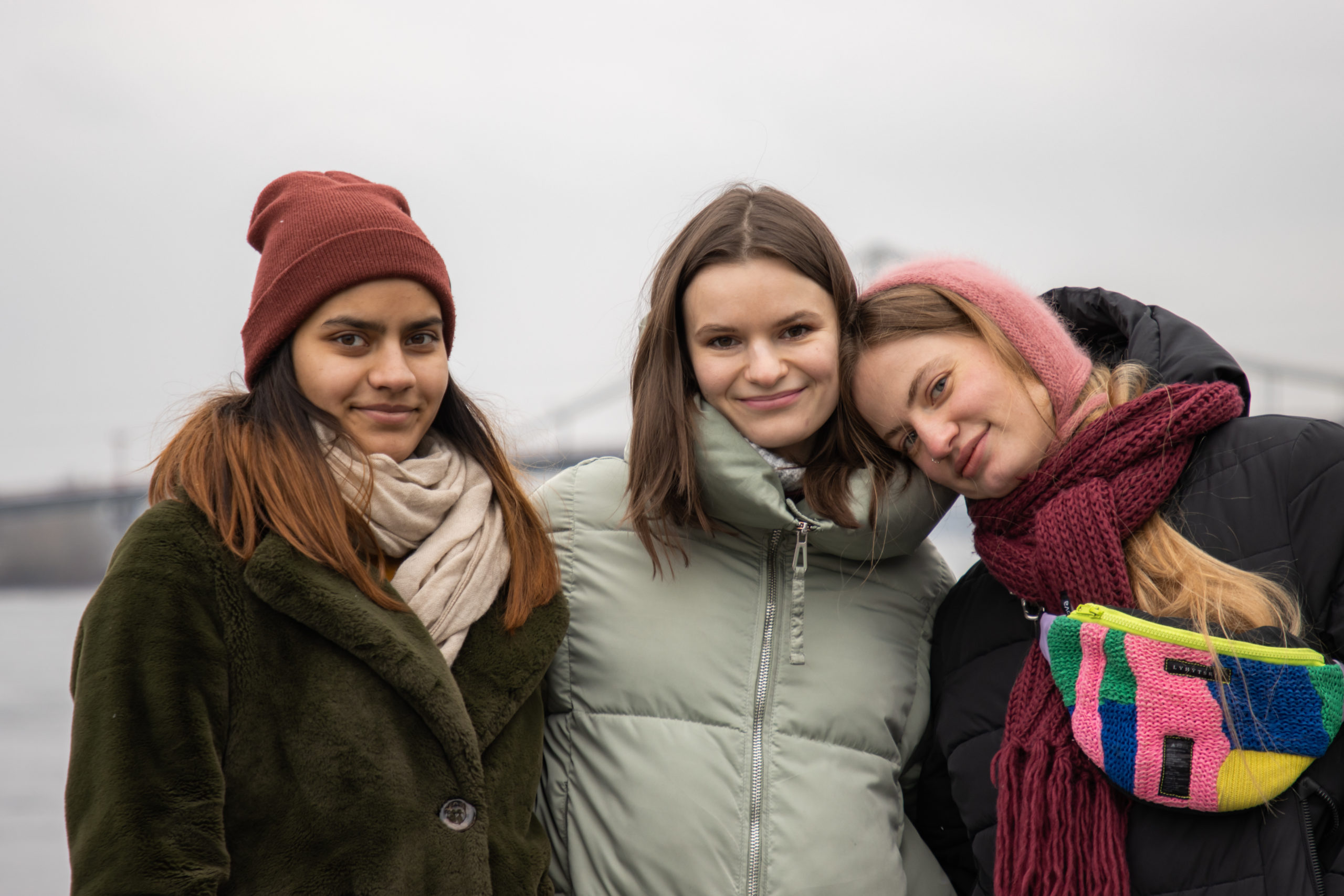
Nastya: The month before the start of the full-scale war was like an art house film for me. You’re sitting in Karma with your friends, discussing what the war will be like. You understand that it will happen, but you don’t want to believe it. I vividly remember driving home from a feminist stand-up show in a taxi on the eve of the invasion and seeing an armoured personnel carrier. It made me reflect on how my old life, which I knew would never come back, was actually amazing. I think I used to focus on what we lacked and how to do more, better, and cooler. At that moment, I realised how much has changed in my life over the years of our activity, and that I want to preserve it to prevent our society from regressing.
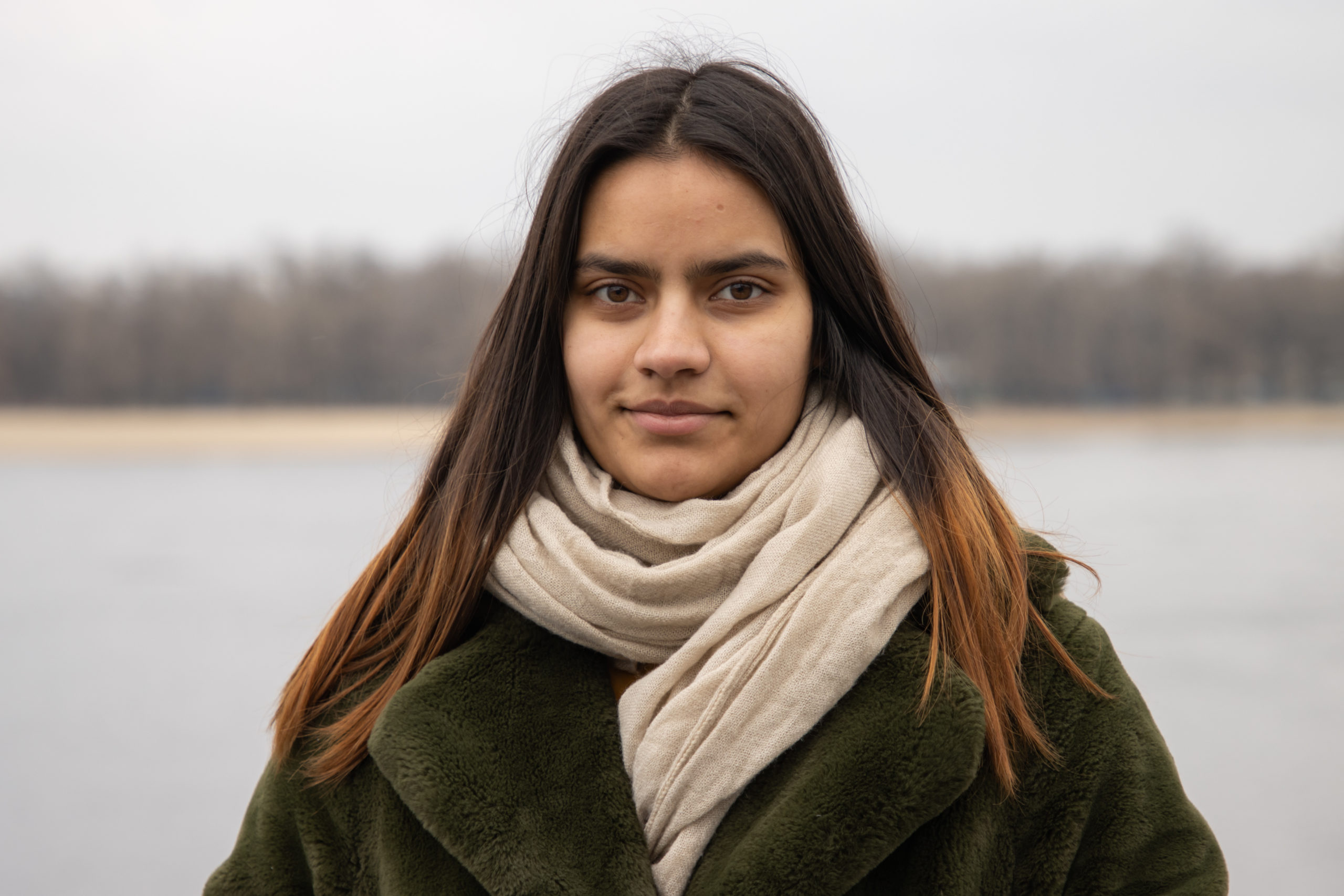
Lesia: There were a lot of different news stories that made me anxious, so I didn’t keep up with them. The only thing I did to feel better was to prepare an emergency backpack. On February 24th, 2022, I didn’t hear any explosions. I woke up at 9 am, read about what had happened in chats with my girlfriends, and then walked around the apartment and cried. It was very difficult to decide whether to leave Kyiv or stay. I was afraid that if I didn’t leave that day, I wouldn’t be able to leave the next day. Eventually, my parents decided to leave, so I got in their car and we drove to the west of Ukraine. I spent three months in Khmelnytskyi and then returned to Kyiv.
I don’t know if I’m coping mentally. It’s really tough now. I started playing computer games for the first time in my life, and I’m trying new things. I go to yoga and hike. I used to just enjoy going on hikes, but now I feel like going on a hike this weekend could help me.
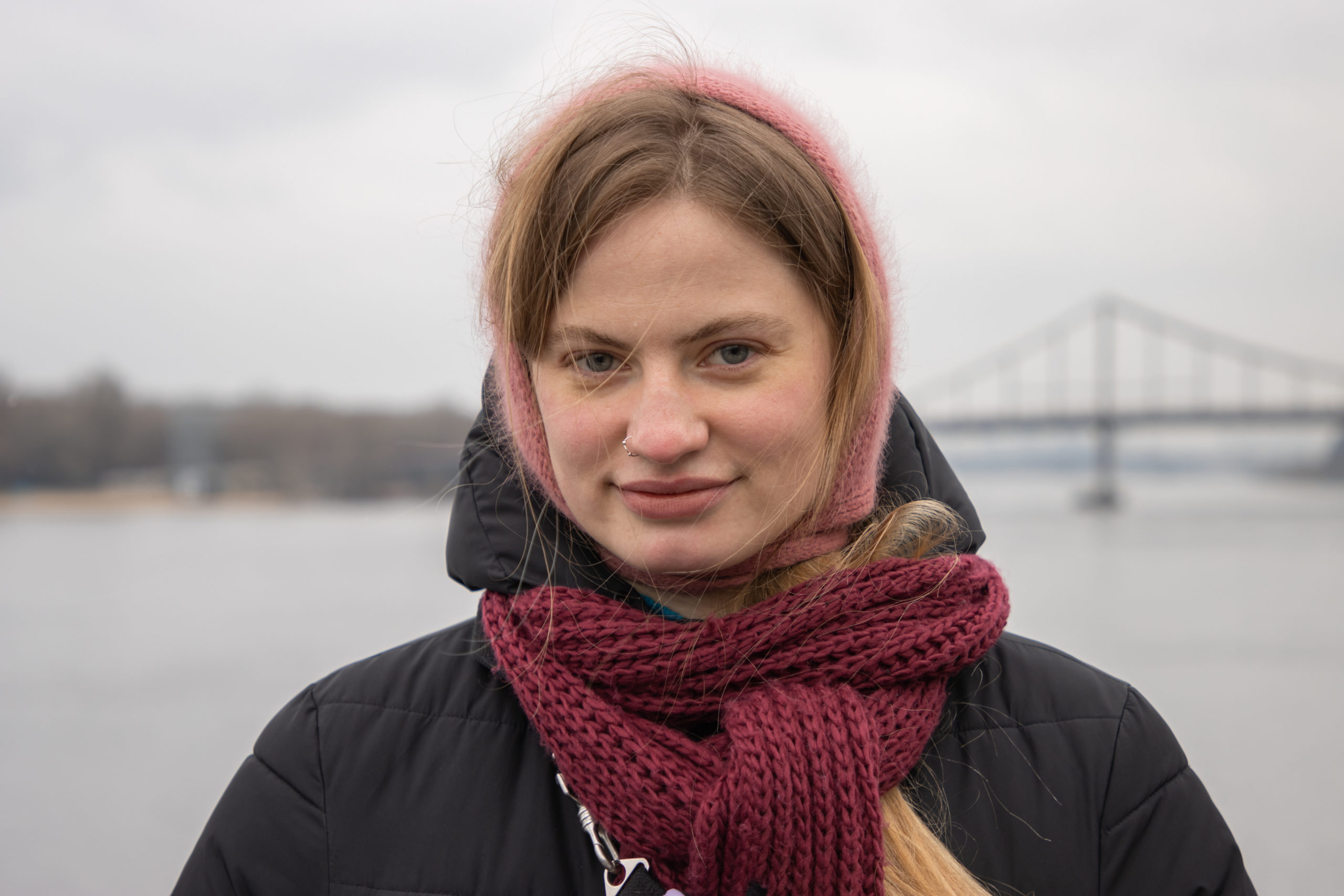
Zhenia: I spent four months in evacuation in Lviv and returned to Kyiv in the summer. On the first day of the invasion, I woke up at 5 am to a call from my sister. By 6, a bunch of friends had already gathered in my apartment. We had an idea to set up a survival squat, but by evening my optimism had dissipated, and my partner and I headed to the train station. We got to Vinnytsia on an evacuation train, and at that very moment Vinnytsia was being bombed.
It’s hard to recall my thoughts, but I had a sense that it wouldn’t happen to us and if it did, Europe had to act. For a long time, I had worked in the field of Holocaust studies, which is infused with ideas about “commonality against a common enemy” and the struggle against authoritarian regimes. But when Russia attacked us, government leaders started expressing their concerns, as they had already done in 2014, and as they had done with other countries – ours was no exception.
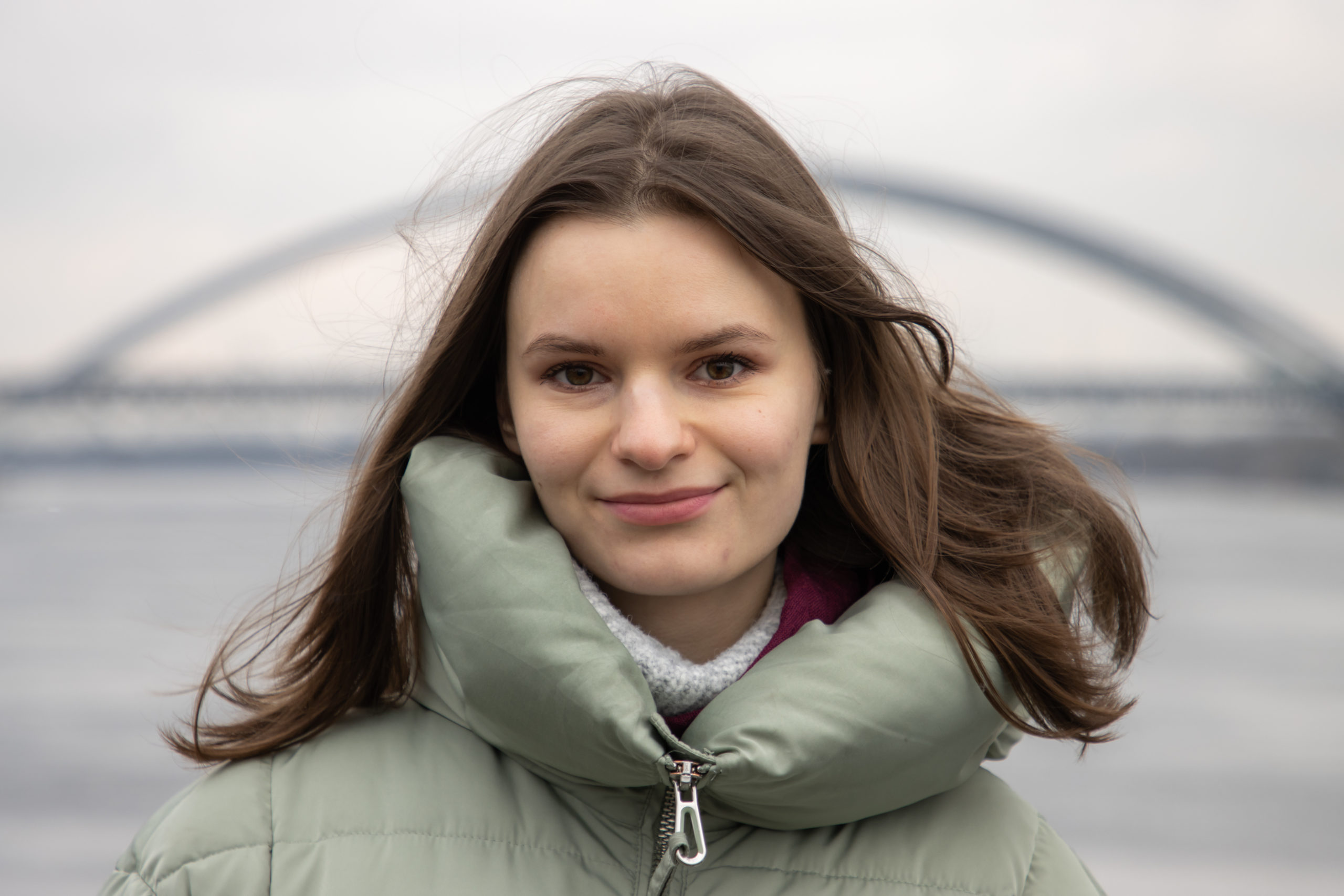
Nastya: Since I stayed in Kyiv after 24 February, I constantly felt like I could die any moment. I gave Lesia the password to my card so that in case of a missile attack, she could withdraw the donated money. Every day was like my last, so I really wanted to communicate my experience. And I had this opportunity since activist networks were constantly calling for discussions. Unfortunately, some prominent feminist activists only supported Ukrainian women in words. When I told them about the facts of my life, they simply ignored them because they didn’t fit their perception of the world.
Zhenia: In spring 2022, I got involved in another volunteer initiative, and my friend and I were invited to a feminist conference in Berlin. Being there, abroad, already felt surreal. It was strange to see the white stripes under passenger planes in the sky, like “Wow! People are flying somewhere!” It was very challenging to get there, but here we are. I went to the first event of the conference, and the speaker talked about how shameful it is to involve the police when conflicts arise in the community. Another example of unworthy behaviour they mentioned was when Ukrainian queer people ask for help. “If you are vegan and queer, it doesn’t mean we are the same” — they said. We were all wearing face masks, and I thought, guys, a day and a half ago, a rocket almost hit me in Lviv. Of course, we are not the same. I couldn’t help but cry into my mask and leave. Here in Ukraine, I see that people understand what self-organisation is and how to show solidarity. Overall, one of the revelations of this war for me is that people actually know a lot.
Nastya: This experience gave me a sense of freedom and emancipated me in some way. I realised that no one has the right to dictate anything to me from a patronising position and that I have my own agency. In the past, I learned about feminism through translations of Western activists and scholars, and I always felt a sense of inferiority, as if everything was so feminist and cool elsewhere, and that we should aspire to that. Now, I want to learn more about countries that have a similar colonial experience, because even from the information I have, their struggles are fascinating. The feeling that I am not a victim, that I am helping people, and that I can do something about this situation, helps me to cope.
You can support the humanitarian work of Feminist Lodge through PayPal ([email protected]) or using the bank details found on Instagram.
Feminists of Kyiv is operated by a team of volunteers. We would like to produce more English-language interviews with feminists, LGBTQ+ activists, and other Ukrainian change-makers. You can support us with a one-time donation via PayPal ([email protected]) or on Patreon.
